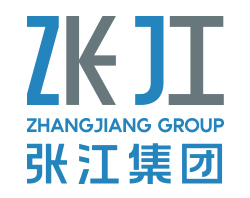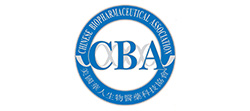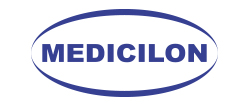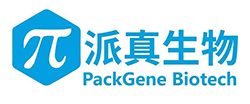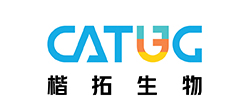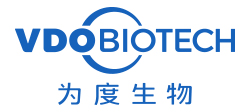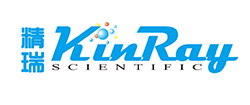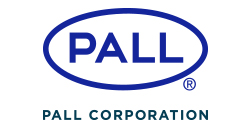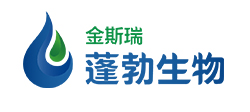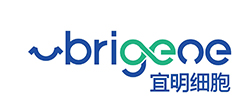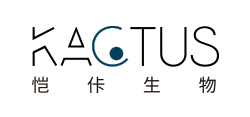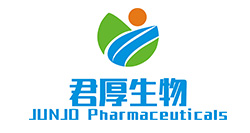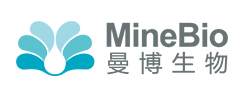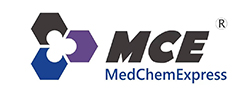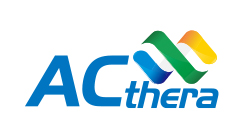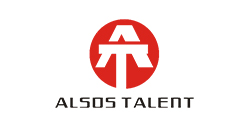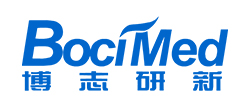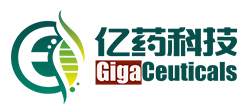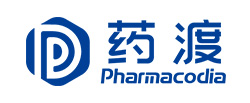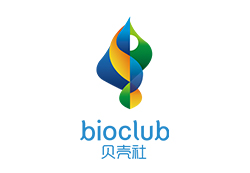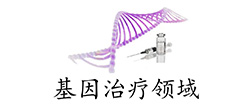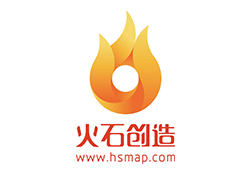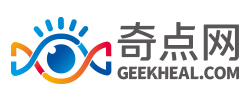

| CART-TCR CELL & GENE THERAPY INNOVATORS PLENARY KEYNOTE SPEECH |
Updates with CAR T Cells
Abstract: Advances in the understanding of basic immunology have ushered in two major approaches for cancer therapy over the past 10 years. The first is checkpoint therapy to augment the function of the natural immune system. The second uses the emerging discipline of synthetic biology and the tools of molecular biology and genome engineering to create new forms of engineered cells with enhanced functionalities. The emergence of synthetic biology approaches for cellular engineering provides a broadly expanded set of tools for programming immune cells for enhanced function. Barriers to therapy of solid tumors will be discussed.
Prof. Carl H. June, Richard W. Vague Professor, Immunotherapy Director, Center for Cellular Immunotherapies, Director, Parker Institute for Cancer Immunotherapy, University of Pennsylvania; Perelman School of Medicine
Glypicans as Emerging CAR-T Therapeutic Targets in Solid Tumors
The emergence of CAR-T cell therapy has provided renewed hope for many patients with B-cell malignancies. However, while CAR-T cells can safely target and destroy lymphoma and leukemia cells without harming other organs in the body, researchers have struggled to identify tumor-specific proteins that can be used in CAR-T cell therapy to target solid cancers without harming healthy organs in the process. In the past 15 years, we have investigated a family of such proteins called glypicans. Glypican-3 (GPC3) and GPC2 are highly expressed in hepatocellular carcinoma and neuroblastoma. More recently, we began to validate GPC1 as a target of CAR-T cell therapy in pancreatic cancer. The update about characterizing these glypicans as CAR-T targets in solid tumors will be presented. The engineering of more potent CAR-T cells using nanobody and protein engineering technologies will also be discussed.
Prof. Mitchell Ho, Senior Investigator, Deputy Director, the Laboratory of Molecular biology; Director, Antibody Engineering Program, National Cancer Institute, NIH.
SynNK Cells: beyond CAR-T Cells
Abstract: Natural killer (NK) cells are the first line against tumor with inherited innate receptors with an array of activating and inhibiting surface molecules to recognize the ligands on tumor and finally to activate NK cells for eliminating tumor. Comparing with “CAR”, an artificial receptor using antibody targeting associated antigen on tumor surface, NK receptors (NKR) and their ligands (NKR-Ls) are more valuable always-standing storehouse of surface targets for NKR as tumor-sensors or NKR-Ls as CARs. Though CAR-T become practical in clinic settings, NKR-NK cells, as effector cells, need pay more attention since advantages of NK cells over T cells, such as NK cells express many naturally-holding anti-tumor receptors in addition to modified CAR/NKR. Importantly, we could not stay at the stage of modification of NK cells only with tumor-sensor CAR or NKR, we need make a more intelligent NK cells with multiple functions to combat complicated “sly” tumor. So, synthetic immunology becomes an ideal tool to produce synthetic NK cells (SynNK) with Logic Gates to precise discriminate tumor from normal tissue, and Basic Circuit to prevent exhaustion, ageing and rejection, and to improve tumor-infiltrating and in situ amplification of NK cells, and so on
Prof. Zhigang Tian, Professor & Director, Institute of Immunology, School of Life Sciences and Medicine, University of Science & Technology of China
Innovative R&D and the Commercialization Road of CAR-T Cell Therapy for the Treatment of B-Cell Acute Lymphoblastic Leukemia
- Epidemiology, Treatment, and Great Umet Clinical Needs of B-ALL
- CAR-T Cell Therapy for the Treatment of B-Cell Acute Lymphoblastic Leukemia in global scale
- The Innovative R&D Road of Inaticabtagene Autoleucel Injection (CNCT19), a Chinese CAR-T Cell Therapy Product
Dr. Lyu Lulu, Chief Executive Officer,Juventas Cell Therapy
运用神经再生型基因疗法治疗退行性疾病
Dr. Gong Chen, Founder, NeuExcell Therapeutics
Professor, Director of Brain Repair Center,GHM Institute of CNS Regeneration, Jinan University
Gene Therapy for BCD
Abstract: This presentation briefly describes the history and current status of gene therapy with particular focus on ophthalmology and introduces the overall strategy of Chinagene for developing gene therapy drugs for ocular diseases. One of the Chinagene’s pipelines, ZVS101e is designed to treat BCD patients and has shown excellent safety and efficacy profile in both preclinical studies and clinical trials. The presentation discusses the current trend and future direction of gene therapy. A wave of consolidation and MA is anticipated in the gene therapy industry. Possible solutions to address challenges in R&D of gene therapy drugs are also reviewed and proposed.
Dr. Xinping Zhao, Chief Scientific Officer, Chinagene Technology
Neurophth’s, “Center of Excellence” in Gene Therapy Development, Manufacturing and Analytical Testing Capabilities with a Diverse Platform, including AAV-based Gene Replacement Therapy Product for Leber’s Hereditary Optic Neuropathy (LHON)
• Global development and manufacturing of Adeno-Associated Virus serotype 2 (AAV2) containing human mitochondrial ND4 gene (NR082) to meet international regulatory requirements.
• NR082 has granted orphan drug designation (ODD) from China NMPA, EMA and US FDA. In addition, the NR082 program has completed Phase 1/2 and Phase 3 clinical trials in China and initiated Phase 1/2 trial in USA.
• Chemistry Manufacturing and Controls (CMC) for gene therapies is one of the biggest hurdles for achieving global regulatory approval. Here we present the risks, challenges and lessons learned for Scale Up of Plasmid and AAV manufacturing processes.
• We highlight many components of QbD, which are used to assess the process and minimize risks, from quality target product profile (QTPP) to Process Validation and PPQ Batches, as preparation for late-state development and BLA-enabling activities.
• Discuss Neurophth’s, “Center of Excellence” in Gene Therapy Development, Manufacturing and Analytical Testing Capabilities with the state-of-the-art facility, equipped to handle the complexity of a diverse gene therapy pipelines.
Dr. Bose Kalampanayil, Chief Technology Officer, Neurophth Therapeutics
Treatment of neurodegenerative diseases with AAV & its CMC
Abstract: In situ cell reprogramming offers the hope of a regenerative therapeutic approach to numerous neurodegenerative diseases. Using AAVs to deliver reprogramming factors to glial cells can result in the transdifferentiation of these cells into neurons and the replenishment of specific neuronal cell populations lost in a given disorder.
In a chemically induced non-human primate model of PD, treatment with AAV-GM101 has led to improved motor behavior, increased dopamine concentration in the CSF, and enhanced dopamine signal within the striatum as measured by PET-CT. To achieve such significant improvement, the quality of AAV is critical, we’ll also discuss the chemistry, manufacturing and controls (CMC) of AAV.
Dr. Jingmin Zhou, Co-Founder & CEO, Genemagic Biosciences
An Industry Perspective on Cell Therapy CMC
- CMC Capacity Building of Cell Therapy
- Product Development of Cell Therapy
Dr. Shuyuan Yao, Chief Executive Officer, Allogene Overland Biopharm
Challenges and Approaches of Comparability Study in Autologous CAR-T Cell Therapy
Abstract: Autologous CAR-T cell therapy is featured with personal, living drug in vitro and in vivo, sterile, and complex characteristics, nevertheless, as drug, changes in materials, process, equipment, method, and sometimes manufacturing site are unavoidable along product development, it is challenging to assess the risks of such changes, even more so to rationalize comparability of pre- and post-change.
This presentation focuses on explore the approaches of comparability study in autologous CAR-T cell therapy. The key points include:
1) Types of changes
2) Risk assessment of changes
3) Quality attribute study
4) Analytical comparability study
5) Non-clinical study, and
6) Clinical bridging
7) Regulatory consultation
Dr. James Wang, Chief Technology Officer, Juventas Cell Therapy
药品全生命周期下的CMC
Abstract: MAH制度全面实施后,药品上市许可持有人须对药物研发、临床研究、生产销售、不良反应等全生命周期负责,而CMC是药品生命周期里的非常关键的一环。从药品全生命周期的角度如何看待和开展CMC工作,使其能够更好地为药品全生命周期服务,确保安全、有效的药物得以实现
Dr. Yong Zou, CMC VP, IASO Biotherapeutics
CMC and non-clinical studies of iPSC-derived cell drugs.
Abstract: Development of multiple iPSC-derived cell drugs is on the fast track around the globe. We at Nuwacell are investing in the utilization of iPSC-derived mesenchymal stromal cells, natural killer cells, dopaminergic neural progenitors, and pancreatic beta cells to treat human diseases. To make these cells on an industrial scale with controllable qualities, we’ve developed unique CMC for each cell product, including the clinical-grade iPSC itself. Thus far, two of our products had received regulatory clearances into Phase I clinical trials in China.
- CMC of clinical-grade iPSC;
- CMC and non-clinical studies of iPSC-derived MSC;
- CMC and non-clinical studies of iPSC-derived NK cells;
- CMC and non-clinical studies of iPSC-derived imDAP.
Dr. Ying Zhang, Chief Technology Officer,Nuwacell Biotechnologies
Challenges and solutions for CART treatment of solid tumors
Abstract: Despite impressive clinical efficacy of T cells engineered to express chimeric antigen receptors (CAR) for some hematological cancers, the current applications of CAR T cell therapy, especially for treating solid tumors, are limited by some major challenges, such as the lack of safe cancer specific targets, highly heterogeneities of the tumors and the tumor microenvironment (TME). To make breakthrough in treating solid tumors, strategies to solve all these challenges are required. We have developed a (CAR or TCR) T cell engineering strategy by incorporating a LACO-Stim molecule for the aim of enhancing engineered T cells’ abilities to counteract with TEM and, at the same time, orchestrating both innate and adaptive immunities against tumors of the patients. This synergistic combination effective CART therapy with tumor vaccine has been proved in pre-clinical syngeneic mouse tumor models and early clinical trials.
Prof. Yangbing Zhao, Chairman & Chief Scientific Officer, UTC Therapeutics
Overcoming the Challenge of T-cell Immunotherapy in Solid Tumors
Abstract: CAR T-cell therapy has been highly successful in treating hematological malignancies, and as a result, there is growing interest in testing this technology for solid tumors. However, the biology of solid tumors is more complex than that of hematological malignancies. There are two major obstacles in T cell immunotherapy for solid tumors: difficulty of engineered T cell-infiltration into solid tumors, and availability of ideal target antigens. At Eureka Therapeutics, we have developed proprietary technologies to address these challenges. Our ARTEMIS technology demonstrated enhanced T-cell infiltration into solid tumors, and our T Cell Receptor-mimic antibody (TCRm) platform broadens the range of cancer[1]specific antigens that can be targeted, including those that are normally expressed intracellularly. We will present an update on our case studies using these technologies to treat liver cancer (HCC)
Dr. Hongbing Zhang, Vice President, Drug Discovery , Eureka Therapeutics
The application of human professional antigen receptors for the development of cell therapy.
Dr. Yi Li, Chairman and Chief Scientific Officer,TIOC Therapeutics
Challenges and Opportunities in T Cell Therapy for Solid Tumors
Dr. Penghui Zhou, Founder & CTO,Guangzhou Fineimmune Biotechnology
An HLA-class II restricted HPV18 E7 specific TCR cloned from a long-term surviving cervical cancer patient induces tumor remission in murine model
Abstract: T cell receptor (TCR)-engineered T cell therapy is a promising approach for the treatment of solid malignancy, with multiple clinical trials reporting impressive responses using affinity-matured TCRs. However, artificially mutated TCRs can increase the risk of off-target toxicities due to unexpected cross-reactions, which limits the overall safety of this approach. To tackle this challenge, we have developed a novel strategy for cloning tumor-specific endogenous therapeutic TCRs from long-term surviving patients who have responded to immunotherapy. Specifically, we have identified a TCR (10F04) that is specific to human papillomavirus type 18 (HPV18) E7 and restricted to human leukocyte antigen (HLA) class II molecular from the peripheral blood of a patient with HPV-positive metastatic cervical cancer who received multiple antigens stimulating cellular therapy (MASCT) and exhibited sustained T-cell immunological responses. Upon transduction into human T cells, the 10F04 TCR demonstrated robust antitumor activity in both in vitro and in vivo models. Notably, the TCR effectively redirected both CD4 and CD8 T cells to specifically recognize tumor cells and induced multiple cytokine secretion along with durable antitumor activity. Importantly, no cross-reactivity was detected. As a result, this TCR is currently being investigated in a clinical trial for treating HPV18-positive cancers. Our approach of cloning tumor-specific and safe endogenous therapeutic TCRs from long-term surviving patients offers a promising strategy for developing safe and effective TCR-engineered T T-cell therapies for solid tumors. These findings provide important insights into the potential of HLA class II-restricted TCR-T therapy as a novel cancer treatment modality.
Dr. Yanyan Han, Chief Scientific Officer, HRYZ Biotech
CD30 CAR-T cell therapy for relapsed/refractory CD30+ lymphoma patients
Abstract: CD30 is a membrane protein that is constitutively overexpressed on all stages of cells in classical Hodgkin lymphoma (HL) and anaplastic large-cell lymphoma (ALCL) with minimal/negligible expression on normal cells, rendering its an ideal target for CAR-T cell therapy to treat relapsed/refractory HL/ALCL patients. Thus, we designed a new third-generation anti-CD30 CAR, and conducted a pilot study of 15 r/r HL/ACLC patients to test the efficacy and safety of CD30 CAR-T cell therapy, resulting in 93.3% ORR, 86.6% CR, and none CRS/ICNAS/CRES over grade 3. Thereby, a Phase I registered clinical trial was carried out in a classic 3 + 3 dose escalation manner to further validate the safety and efficacy of CD30 CAR-T cell therapy. Expectedly, 100% ORR and 83.3% CR were observed in median/high doses, while none Grade ≥ 3 CRS was found in all 9 patients. Taken together, these clinical studies demonstrated CD30 CAR-T cell therapy as a safe and effective treatment for relapsed/refractory CD30+ lymphoma patients
Dr. Tony Zhang, Chairman of the Board, President, Wuhan Bio-Raid Biotech
Leading the Innovation of Developing Next Generation Cell Therapy Products against Solid Tumor via CAB-T Cell Therapy Platform
Abstract & Bullet Points: In the past decade, immunotherapy has achieved unprecedented success in providing the complete remission rate of hematological tumors. Since 2017, 6 CAR-T products targeting CD19 or BCMA have been successfully marketed and approved for the treatment of hematological malignancies. However, unlike tumor infiltrated lymphocytes (TIL) therapy and TCR-T cell therapy, which have been proved for their effectiveness for treating solid tumors, CAR-T therapy has not yet demonstrated significant clinical efficacy, and there is still an unmet need to develop an HLA independent cellular therapeutic regimen for treating solid tumors with good clinical efficacy and manageable clinical side effects. Biotheus’ CAB-T is a novel cell therapy platform combining the advantages of CAR-T and using T cells as an anti-CD3 T cell engager delivery source. Here, we will present a comprehensive overview of our CAB-T programs with proof of safety and efficacy in multiple in vivo efficacy studies and investigator initiated trials (IIT).
Dr. Zhiyuan Li, Director of Functional Biology and Cell Therapy, Biotheus
Immune Checkpoints in Cancer Therapy
Abstract: Checkpoint inhibiting drugs targeting the PD1 pathway represent one of the most encouraging new therapeutics for cancer. Millions of cancer patients have benefited from using checkpoint inhibitors since their first approval in 2014 by the US FDA. However, most cancer patients do not respond to PD1 pathway inhibitors and those who do eventually develop disease progression. Therefore, there is a strong unmet need to improve the efficacy of PD1 pathway inhibitors or to develop drugs targeting new immune checkpoint regulators. In this talk, Dr. Chen will discuss new developments in the field of immune checkpoint research and new opportunities for developing the next class of anti-cancer immunotherapeutic drugs, either used alone or in combination with engineered T cell therapies.
Prof. Youhai Chen,Chair Professor, Dean of Faculty of Pharmaceutical Sciences, Shenzhen Institute of Advanced Technology
Universal CAR-T Therapy for Hematological Malignancies
Abstract: Autologous lymphocytes from patients are used to manufacture CAR-T cell products. This “personalized therapy paradigm” has limitations in the large-scale production and timely application of CAR-T cell therapy. Universal CAR-T cells (UCAR-T) might help eliminate these drawbacks and become a promising breakthrough in tumor immunotherapy. The design of UCAR-T cells with TCR or HLA-A knocked out by gene-editing technology, such as Zinc finger nuclease (ZFN), transcription activator-like effector nuclease (TALEN) and CRISPR/Cas9 system, successfully generates host-friendly allogeneic CAR-T cells high quality, prompt availability, and widespread application for patients. Now some UCAR-T clinical trials have been applied in B cell derived hematological malignanices including CD19, CD22 and BCMA and achieved eminent efficacy. Current challenges in adapting CAR technology for T cell disease include fratricide, T cell aplasia, and product contamination. UCAR-T cells also achived great progress. In our center, CD7 targeted UCAR-T cells for CD7 positive malignanices achieved 82.2% overall response rate. Although the utilization of UCAR-T cells has exhibited dramatic achievements in hematological malignancies, several limitations still exist in consideration of safety and efficacy. Most of all, GVHD is one of the major challenges that hinders the broad application of UCAR-T cells, as the current techniques are still unable to knock out TCR completely. Moreover, multiple genetic editing processes increase the risks of gene mutations, clonal expansion and potential on-target off-tumor effects. Reduced proliferation and persistence of UCAR-T cells in patients have also been observed, with failure to generate memory subsets, and the mechanisms behind those are still obscure. Modifications are still needed in the future
Prof. He Huang, President, The first Affiliated Hospital, School of Medicine, Zhejiang University
Synergize Powers to Build the Future: The Development Road of Inaticabtagene Autoleucel Injection(CNCT19), an Innovative CD19 CAR-T Cell Therapy Drug from China
Dr. Lulu Lyu, Chief Executive Officer, Juventas Cell Therapy
Research Progress of Gene Editing Technology in Cell Therapy
- Introduction to gene editing technology and CAR-T technology
- Development and preclinical evaluation of non-viral site-specific integrated CAR-T technology
- Clinical treatment of non-viral site-specific integration of CAR-T cells
Prof. Mingyao Liu, Founder, Chairman and Chief Scientist, BRL Medicine
CMC Development of ROBO1 CAR-NK Cell Therapeutics
Dr. Amy Que, Chief Executive Officer, Ascle Therapeutics
Leading the Innovation of Developing Next Generation Allogenic iPSC-Derived CAR-NK Cell Therapies
Dr. Richard Wang, Founder, Chairman and CEO, Neukio Biotherapeutics
Gene modified NK cells: From Natural Basis to Design for adaptation and Kill
Abstract:iPSC-derived therapies have great promise in the effective treatment of many human diseases, potentially providing curative medical solutions for a wide range of life-threatening diseases, including cancer. iPSC derived NK cells could be safer, faster to produce, easier for gene manipulation, and cheaper, prove to be promising immunotherapeutic candidates for treating cancer. Allife aims to provide unlimited number of standardized, off-the-shelf iNK cells in current GMP-compatible conditions. Our group also focus on NK cell potency upgrading. Based on the iPSC gene editing platform, iPSC derived NK cells are design to target the tumor site and adapt hostile tumor microenvironment, so they can work in situations where T cells falter. By shifting the balance between the signaling of inhibitory and activating receptors, we succeed to produce iPSC-NK cells with enhanced expansion, in vivo persistence and tumor killing capability
- Allife aims to provide unlimited number of standardized, off-the-shelf iNK cells in current GMP-compatible conditions.
- Gene modified iPSC-NK cells are design to target the tumor site and adapt hostile tumor microenvironment
- Allife has succeed to produce iPSC-NK cells with enhanced expansion, in vivo persistence and tumor killing capability
Dr. Yuchun Gu, Chief Scientist and CEO, Allife Medicine
Harnessing NK Cells as a Therapeutic Solution with Modular Antibodies
Abstract: A traditional chimeric antigen receptor (CAR) has a fixed design, and one type of CAR T cells can only target one antigen epitope. This rigid design limits clinical application and leads to exceptionally high manufacturing cost. New CARs are being engineered to targeting a specific domain of antibodies, instead of directly binding with the epitope of antigen. The tumor targeting function can be easily switched without the requirement of re-engineering the cells. This CAR system can therefore serve as a universal CAR. With the scalable advantagies of NK cell therapy, the modular CAR platform will finally be an universal product providing solid anti-tumor efficacy while remaining the excellent safety profiles. However, the current modular design of the switching molecules relies on a better understanding of NK biology. I will discuss the medically appealing and also present new challenges in the development of novel NK therapies.
Dr. Andy Yuan, CAR-NK Discovery Head, Innovent Cells Pharmaceutical (Suzhou)
Development of innovative CAR-T technology platforms for to great unmet needs
CAR-T industry’s bottlenecks and unmet needs.
Strategies of innovative approaches to develop best-in-class CAR-T products.
FasTCAR-T development
Development of off-the-shelf CAR-T products
Dr. William (Wei) Cao, Founder, Chairman and Chief Executive Officer, Gracell Biotechnologies
The Latest Progress and Trend of Global CAR-T Cell Therapy for Solid Tumor
* CAR-T therapy has been successful in the treatment of some hematological malignancies, but the treatment of solid tumors faces greater challenges
* However, many latest development directions are exhibiting promising outcomes
* Among them, payload delivery has become the key to breaking the tumor immunosuppressive microenvironment
* In addition, many innovative combination strategies have produced encouraging results in the treatment of solid tumors with CAR-T
* At the same time, off-the-shelf cell therapy products for solid tumors are emerging
* Finally, the progress made by PersonGen in the development of CAR-T products for solid tumors is summarized.
Dr. Lin Yang, Founder and Chief Executive Officer, PersonGen BioTherapeutics
Integrating Cell Industry Chain Resources to Accelerate the R&D of Universal Cell Therapy Products
Abstract: After decades of accumulation and breakthroughs in cell therapy technology, more and more revolutionary therapeutic products have been developed. At present, major countries in the world have also issued corresponding policies to support the development and transformation of cell therapy products. Simultaneously, the continuous investment of international capital has promoted the rapid development of the cell therapy industry. With the reform and innovation of China's drug review and approval system in 2017, it has provided a historical opportunity for the development of China's cell therapy industry. The joint promotion of enterprises, talents, research institutions and capital markets in the field has promoted the rapid development and expansion of the domestic cell therapy industry in recent years. In 2021, the breakthrough of cell drugs in China's is achieved. At the same time, the future development of China's cell therapy industry is also facing many challenges, including materials, equipment, technology, funds, talents, and policies. How to better overcome these challenges is a question worthy of consideration and exploration.
Dr. Yu Zhang, Chief Executive Officer,VCANBIOPHARMA
CD30: a cancer target and a modulator for CAR-T product development
Abstract: CD30 is a member of TNFR family. CD30 is highly expressed in Hodgkin’s lymphoma and several other types of cancers. As well as in cells of immunologic diseases. It is also expressed in T cells upon activation, thus a CAR T cell product against CD30 may encounter fratricide issue during the manufacturing process. In this presentation, several strategies to overcome this challenge and results will be discussed. On the other hand, the interaction between CD30 and its cognate ligand, CD30L, may be immune suppressive, thus we also explored the possibility of enhancing CAR T activity by disrupting CD30-CD30L interaction. Based on these studies, we are developing CD30-focused platforms to generate CAR-T products for solid tumor and immune diseases.
Dr. Jinhua (Jim) Lu, Chief Scientific Officer, TriArm Therapeutics
How Innovative Base Editing System Leading Target Screening and In Vivo Study towards Diversified Therapeutic Indications
Abstract: Base editing provides the most advanced DNA and RNA editing treatment for variety of therapeutic targets with the best safety control and high efficacy. Unlike CRISPR and other "molecular scissors" gene editors which cause double strand breaks and massive off-target mutations, the transformer Base Editor (tBE) authentically patented from CorrectSequence Therapeutics has been applied in vitro and in vivo through different delivery systems to enable treatment of various diseases without these safety risks. The comparison between traditional CRISPR system and advanced base editing system will be addressed on fundamental technology platforms, medical applications, safety and editing efficiency. The applications of Base Editing and summary of global pipelines derived from base editing systems with diversified delivery systems will be presented.
Dr. Susan Mou, Chief Executive Officer, CorrectSequence Therapeutics
Exploration of new generation CAR-T therapy in solid tumors
Abstract: With many CAR-T cell drugs on marketing in China and the world, evidences of CAR-T cells in the treatment of recurrent and refractory hematopoietic malignancies have shown the unique clinical value. Whether it can be realized in solid tumors remains challenges. These challenges result mainly from the differences between solid tumors and hematological cancer in target, solid tumor-related immunosuppressive microenvironment, heterogeneity, etc. Facing these challenges, we have established a self-secreting nanobody CAR-T product platform based on the dual anti-tumor strategy of CAR-T targeting tumor antigen and changing tumor suppressive microenvironment. We can achieve targeting and killing tumor cell by CAR-T and meanwhile relieving immunosuppression in the tumor by continuously secreting nanobodies. The nanobodies are not only to relieve immunosuppression, but also protect CAR-T from tumor microenvironment immunosuppression, relieve the immunosuppression of tumor-infiltrating T cells (TIL) in vivo, promote TIL to target tumor cells with different markers to play the same anti-tumor role, and therefore alleviate the damage caused by tumor heterogeneity and immunosuppressive microenvironment.
Dr. Yan Sun, Co-Founder and Group COO, Shanghai Cell Therapy Group
Challenges and Opportunities of Immune Cell Therapies for Cancer Treatmentn
- Overview of current immune cell therapies
- Challenges and potential strategies
- Introduction of Biosyngen pipelines
Dr. Cecilia Zhangn, Chief Scientific Officer, Biosyngenn
Innovation of Ex-vivo Cell & Gene Therapy for Pyruvate Kinase Deficiency (PKD) – The CG001 Development Story
Dr. Michael Wang, CEO and Founder, CorrGene Biotechnology
Update on ThisCART, A Novel Non-gene-editing Allogeneic CAR-T Platform
Abstract: Chimeric antigen receptor T (CAR-T) cells have shown remarkable success in treating certain malignancies, in particular leukemia and lymphomas. However, the logistics involved in time to manufacturing and costs of therapy adds a layer of complexity for clinicians and patients. To address these key hurdles, recent efforts have focused on developing well-characterized allogeneic or ‘off-the-shelf’ cell therapies. Gene editing is one of the most promising such methods today, such as zinc-finger nucleases (ZFN), transcription activator-like effector nucleases (TALENs) and clustered regularly interspaced short palindromic repeats (CRISPR). Gene editing has several disadvantages: genome off-target concern, cell damage from electroporation and chromosomal abnormality from gene editing.
Our company has successfully developed an allogeneic CAR-T platform technology: a novel non-gene-editing allogeneic CAR-T platform on the base of intracellular retention of membrane proteins, and named ThisCART (This = TCR and/or HLA-I intracellular sequestered). CD19-directed ThisCART (ThisCART19A) cells are readily produced with a single lentiviral vector, encoding both a CD19-targeting CAR and an anti-CD3 single chain antibody with the KDEL peptide fused to its C-termini. ThisCART19A cells, deficient of surface TCR/CD3 complexes in extended culture, induced no xenogeneic GvHD reaction in murine model. Similar to conventional CD19-directed CAR-T, they exhibited potent CD19-specific cytotoxicity both in vitro and in vivo.
A single-center, open-label, single-arm study (NCT04384393) is ongoing to evaluate the safety, pharmacokinetics and clinical activity of ThisCART19A in patients with refractory or relapsed CD19 positive B cell malignancies. As of October 2022, eight evaluable subjects with aggressive or advanced non-Hodgkin’s lymphoma received ThisCART19A infusion. Subject #3 had received two subsequent autologous CAR-T therapies and relapsed after each treatment. Adverse event profile is acceptable: no ≥3 grade of CRS or ICANS and no evidence of GvHD reaction. Two subjects experienced reversible Hemophagocytic lymphohistiocytosis with decreased lymphocytes and neutrophils. Dose-dependent CAR-T expansion was observed in six subjects pretreated with enhanced lymphodepletion. Lack of CAR-T expansion in the other two is likely due to the standard lymphodepletion or quick disease progress. PET/CT (≥28 days) scan demonstrated one partial response and five complete responses. Among these five, three remain in remission with one in continued follow-up over 10 months.
ThisCART19A cells demonstrated potent CD19-dependent cytotoxicity and no xenogeneic GvHD in murine models. In this preliminary analysis on evaluable lymphoma subjects, ThisCART19A exhibited an acceptable safety and an encouraging clinical response profiles. More recent clinical data may be updated at the conference.
Dr. Jun Li, Founder and Chief Executive Officer,Fundamenta Therapeutics
CD7 CAR-T Cell therapy for T-Cell malignancies
Abstract: CAR T-cell therapies are urgently needed for T-cell malignancies, because of the dismal outcomes associated with conventional treatment for T-cell leukemia and lymphoma. However, a major obstacle to the development of effective CAR T-cell therapy for T-cell malignancies is that targets selected for treatment are mostly the lineage receptors for T-cells, which may cause difficulty for CAR T-cell manufacturing due to fratricide.
In this presentation, current CD7 CAR T-cell therapies for T cell malignancies will be reviewed. Several clinical stage CD7 targeting CAR T- cell therapies will be presented, including the choice of CD7 binding domains, signal stimulation domains, as well as several different strategies for preventing fratricide. Their respective clinical outcomes will also compared. Finally, our world leading IntraBlockTM CD7 CAR T-cell technology, which has achieved one of the ten greatest advances in Chinese Hematology in 2021, will be presented.
Dr. Alex Chang, Founder, Shanghai Yake Biotechnology
Cutting Edge Gene Therapies Need High Quality of AAVs Manufactured from Promising Platforms
Abstract: In vivo Glia-to-Neuron cell reprogramming is a cutting-edge gene therapeutical method to cure patients with neurodegenerative disorders, AAV is the most popular vehicle to deliver the functional modalities to the central nervous system, and the quality of GMP grade AAV vectors play critical roles. This presentation will focus on the manufacturing challenges of GMP grade AAV vectors.
Dr. Jing-min Zhou, Co-Founder and Chief Executive Officer, Genemagic Biosciences
Development of rAAV Gene Therapy Products in Hemophilia -- ZS801/ZS802 Development Story
- FVIII and FIX with enhanced activity
- Liver specific promoter with small size
- Serotype suitable for more patients
Dr. Biao Dong, Chief Executive Officer, Sichuan Real & Best Biotech
CMC Development and Regulatory Submission Strategy for Extracellular Vesicle-based Therapeutics
Extracellular vesicles (EV) have emerged as an important class therapeutic modality, that holds immense potential as non-synthetic nanoparticle delivery system. The clinical development of EV has been hurdled by the complexity in manufacturing technology and analytical control, as well as the limited regulatory guideline currently available for this class of molecules. Here we will discuss about the challenges and solution in the process, formulation and analytical development for EV-based therapeutics. We also provide some perspective in the current regulatory landscape and strategy in preparing the CMC dossier for IND submission of EVs.
• Overview of EV-based therapeutics
• Challenges and solution in process, analytical, formulation and clinical supply for EV
• Regulatory submission strategy for EV
• Emerging trends and future outlook
Dr. Clement Cai, Principal Scientist, Analytical Development, Codiak Biosciences
Cross talk between tumor cell-derived extracellular vesicles and pleural mesothelial cells
Dr. Zhijian Cai, Professor, Zhejiang University
Engineered Human Pluripotent Stem Cell-Derived Natural Killer Cells
Abstract:Human pluripotent stem cells provide a key resource for cellular immunotherapies. Our group pioneered studies to demonstrate efficient production of natural killer (NK) cells can be efficiently derived from both human embryonic stem cells (hESCs) and induced pluripotent stem cells (iPSCs). These cells can be routinely genetically engineered to derive immune cells with improved anti-tumor activity. Specifically, hESCs and iPSCs serve as a platform to express chimeric antigen receptors and other modifications to enhance anti-tumor activity. Importantly, hESC/iPSC-derived NK cells can be expanded to clinical scale in current GMP-compatible conditions. Since NK cells function as allogeneic cells, this strategy enables use of hESC/iPSC-derived NK cells as an “off-the-shelf”targeted cellular immunotherapy against refractory malignancies. Our group has also initiated studies to do whole genome CRISPR/Cas9-mediated screening of different tumor cell types to identify novel regulators of NK cell activity
Dr. Dan S. Kaufman, Professor, Dept. of Medicine, Director of Cell Therapy Program,University of California San Diego Health,Co-Founder; Board Member and Chief Scientific Officer, Shoreline Biosciences
Engineered T Cell Immunotherapies Using Synthetic Immunoreceptors and Cytokine Systems
Dr. Michael C. Milone, Associate Professor of Pathology and Laboratory Medicine, University of Pennsylvania Perelman School of Medicine,
Scientific Co-Founder and Co-Chair of the Scientific Advisory Board, Cabaletta Bio and Verismo Therapeutics
Technological progress in generation, maintenance, engineering and differentiation of pluripotent stem cells
After more than 10 years since the first human iPS cells were reported, stem cell technology is being used to create new medical therapies. At CiRA Foundation we strive for continuous improvement of all aspects of the iPS cells manufacturing and act as a bridge for the transfer of iPS cell technology from the academia to the biomedical industry.
We are working on the projects aimed at providing cells for both, allogeneic and autologous applications. It becomes clear that to reliably provide clinical-grade cells, required to be manufactured with adherence to cGMP regulations, our process development should proceed toward automation and optimization of the protocols. To highlight the technological progress in the stem cells field, I would like to present some of our work.
For the large-scale expansion of iPS cells, we are evaluating automated closed culture platforms, the CliniMACS Prodigy Adherent Cell Culture System (Miltenyi Biotec) with CellSTACK Chambers (Corning) and Quantum Cell Expansion System (Terumo BCT).
One of the challenges in the manufacturing of genetically engineered iPS cells is single-cell cloning. I will show our progress in the culture protocol optimizations and single cell dispensing experiments results with UP.SIGHT instrument (Cellink/Cytena).
Finally, I will discuss the single cell imaging and manipulation capabilities of the CellCelector platform (ALS Automated Lab Solutions) in combination with Elplasia nanowell plates (Corning) and SIEVEWELL slides (Tokyo Ohka Kogyo).
- large-scale iPSC expansion
- single cell cloning
- automation
Dr. Rafal Krol, Principal Investigator, Research and Development Center, Kyoto University, CiRA Foundation
New immune checkpoints for cancer immunotherapy
Checkpoint inhibiting drugs targeting the PD1 pathway represent one of the most encouraging new therapeutics for cancer. Millions of cancer patients have benefited from using checkpoint inhibitors since their first approval in 2014 by the US FDA. However, most cancer patients do not respond to PD1 pathway inhibitors and those who do eventually develop disease progression. Therefore, there is a strong unmet need to improve the efficacy of PD1 pathway inhibitors or to develop drugs targeting new immune checkpoint regulators. In this talk, Dr. Chen will discuss new developments in the field of immune checkpoint research and new opportunities for developing the next class of anti-cancer immunotherapeutic drugs, either used alone or in combination with engineered T cell therapies.
Prof. Youhai Chen, Chair Professor, Dean of Faculty of Pharmaceutical Sciences, Shenzhen Institute of Advanced Technology
Advancing the Next Generation of Cell Therapy with Universal “Modular" CAR-T
Abstract: CAR-T cell therapy has established a meaningful role in the treatment of hematological tumors with 5 products approved by the FDA, and 2 by the NMPA in China, respectively; however, antitumor efficacy for solid tumors remains a challenge calling for technological breakthroughs. We have developed a universal "modular" CAR-T cell product , aiming to overcome many challenges that we are facing in cell therapies. I will discuss the mechanistic understanding on how the adaptor bridging can lead to the controlled T cell expansion and their lineage development, to achieve the superior anti-tumor efficacy while remaining the excellent safety profiles.
Dr. Wei Xu, Chief Scientific Officer, Innovent Cells
The Latest Development and Progress of Universal CAR-T (UCAR-T) Cell Therapy
- The strategy and challenges of universal CAR-T
- The updates of clinical trials of UCAR-T
Dr. Jie Chen, Chief Medical Officer, Bioheng Biotech
Strategies for Life-cycle Analysis of Immunocell Therapy Products
Abstract: With two CAR-T products (FosunKite Axi-Cel and JW Relma-cel) in China in 2021 successfully obtained NMPA approval, the global second BCMA-targeted BCMA product of Nanjing Legend was launched in 2022. The first year of China's cell therapy industry has officially arrived. As technology matures and regulatory policies promote the clinical development and transformation of innovative products, cell therapy will help my country's biopharmaceutical industry enter a new era.
Due to the in-depth research and technological breakthroughs in tumor immunity, in addition to the highly anticipated star product CAR-T, new cell therapies such as TCR-T, TIL, and CAR-NK have gradually gained widespread attention. For example, TCR-T can recognize neoantigens in tumor cells and on the cell surface through specific MHC molecules, and has more advantages in the treatment of solid tumors; CAR-NK, compared with CAR-T, hardly causes GVHD and CRS, and has better safety and efficacy, and a wide range of allogeneic cell sources.
Compared with traditional small and large molecule drugs, cell therapies are significantly different in product design, raw materials, preparation process, quality attributes, mechanism of action, in vivo action and metabolic characteristics. The clinical efficacy of autologous cell-derived CAR-T products is closely related to the phenotype of leukapheresis T cells, molecular design of ScFV, tumor burden, preparation process, intracellular costimulatory domain, and phenotype characteristics of CAR-T products. How to comprehensively characterize the preclinical critical quality attributes of cell therapy products through continuous optimization and in-depth analysis of analytical methodologies, and evaluate patient prognosis through pharmacokinetics, safety, and biomarkers after clinical administration, requires deep discussion.
Ms. Lijie Wu, Head of CGT Platform, PPC
From AAV gene therapy to in vivo genome editing: Developing novel therapies for OTC deficiency
Dr. Lili Wang, Research Director, Translational Research and Gene Editing, Research Associate Professor, Department of Medicine, Translational Research, Gene Therapy Program, Perelman School of Medicine, University of Pennsylvania
Current progress of mRNA vaccines and process development of mRNA
- current development of mRNA vaccines
- In vitro synthesis and process development of mRNA
- Analysis strategies of mRNA products
Dr. Shanshan Wang, Senior Scientist, Process Development, Innoforce Pharmaceuticals
Developing Neuroregenerative Gene therapy to Treat Neurodegenerative Disorders
Dr. Gong Chen, Founder, NeuExcell Therapeutics, Professor, Director of Brain Repair Center, GHM Institute of CNS Regeneration, Jinan University
Ex vivo gene editing for the treatment of hematopoietic inherited diseases
Abstract: Advanced gene and cell therapies for the treatment of genetic diseases is a growing field thanks to the new gene editing tools available. Engineered endonucleases, such as CRISPR/Cas9 system, allow the generation of very precise sequence specific genetic modifications. Gene editing in the presence of therapeutic DNA template has opened the possibility of site-specific gene therapy, avoiding potential risks of insertional oncogenesis. In this regard, we have developed a clinically applicable strategy for the site-specific gene therapy of the PKLR locus, in which, mutations induce a type of hemolytic anemia called Pyruvate Kinase Deficiency. We combined CRISPR/Cas9 system with rAAVs for donor delivery of a codon-optimized PKLR cDNA to build an efficient, safe and clinically applicable system to knock-in therapeutic sequences at the translation start site in human hematopoietic progenitors (HSPCs). Edited HPSCs efficiently reconstituted human hematopoiesis in immunodeficient mice. Erythroid cells derived from edited PKD-HSPCs restored PKD erythropoiesis after gene editing. Overall, gene editing allows an integrated for the development of safe gene therapy approaches, as the definitive cure of those devastating rare diseases with unmet treatment.
Dr. Jose-Carlos Segovia, Co-Founder and Chief Scientific Officer, WuXi CorrGene
AAV Gene Therapy for Retinal Channelopathies: Strategies for CNGA1mutation-induced RP49
Abstract: As the advance of the understanding on the genetic basis for inherited retinal dystrophy, related AAV gene therapy has got significant progress in recent years. Many AAV and related ophthalmic programs have come into clinical trials, one case has been approved by US FDA (Spark’s Luxturna). However, recent announcement about the failure of several ophthalmic gene therapy, i.e. two Biogen’s Phase II/III gene therapy clinical studies in inherited retinal diseases last year bring some challenges, they are 1. Choroideremia (timrepigene emparvovec, BIIB111/AAV2-REP1) and 2. X-linked retinitis pigmentosa (RP) (XLRP, Cotoretigene toliparvovec, BIIB112) phase II/III gene therapy (called XIRIUS), it suggests that AAV gene therapy is not a simple gene augmentation and CMC issue. Here, we exhibited our pre-clinical results on CNGA1 gene therapy for RP49. First of all, we cloned and studied the normal functions of CNGA1 channel and then, we created a knockout (KO) mice associated with CNGA1 to match the human RP disease. The retina of these CNGA1 KO animals was then characterized to assess the relationship between the genotype and phenotype of retinal disease that affected patients. Following the identification patient population and the development of techniques (AAV or others) for the viral gene transduction of retinal cells, we delivered a copy of the normal CNGA1 gene into the retinal sites where the mutated genes exist via subretinal injection. When this was performed in animal models of monogenic diseases, which was at an early stage of retinal degeneration while the affected cells remained viable, gene augmentation to correct the structural and functional lesions characteristic of the specific diseases in the areas of the retina were successfully conducted.
Dr. Jay ( Ji-Ye ) Wei, Chairman and CEO, ViewGene Therapeutics
Considerations towards Development of In Vivo Gene Therapies
- In vivo Gene Therapy: key principles and major cmc challenges
- A development strategy to maximize flexibility and success of clinical programs
- Understanding the linkage between CMC and clinical outcomes, risk based approach to the determination of the control system
Dr. Markus Haindl, Global Head Gene Therapy Technical Development, Pharma Technical Operations Cell and Gene Therapy, Roche
Global Development and Manufacturing of NR082 (rAAV2-ND4), AAV-based Gene Replacement Therapy Product
Abstract: Neurophth is developing adeno-associated virus serotype 2 (AAV2) containing human mitochondrial ND4 gene (NR082), which when translated, effectively supplements the endogenous mutated ND4 gene via a single intravitreal injection in patients with Leber’s Hereditary Optic Neuropathy (LHON). Safety and efficacy of NR082 gene replacement therapy have been demonstrated in several investigator-initiated studies and an on-going Phase 1/2/3 registrational trial in China. NR082 has granted orphan drug designation (ODD) from both the EMA and US FDA; in addition to the ODD, the NR082 investigational new drug (IND) application recently received clearance by the US FDA. Chemistry Manufacturing and Controls (CMC) for gene therapies is one of the biggest hurdles for achieving global regulatory approval. Here we present the risks, challenges, lessons learned, and a clear roadmap for the NR082 global CMC program to support the global clinical development and commercialization needs.
• Neurophth has established a commercial GMP production facility in Suzhou according to the international GMP & quality standards (NMPA, FDA & EMA) and planning to utilize the product manufactured in this facility to support NR082 global development program.
• A quality-by design (QbD) strategy is implemented by defining a target product profile for NR082 which includes specifications for safety, quality, purity, potency, and efficacy of the drug product.
• The NR082 manufacturing program is designed for optimal removal of “Process-related Impurities” and “Product-related Impurities” to meet acceptable product specifications while retaining high recovery and virus infectious titer for AAV2.
• A CMC comparability design and execution including statistical approaches for NR082 is established to overcome regulatory challenges.
• Development of a sound quality control testing program with parallel orthogonal methods (up to 30 assays/methods) to assure that the quality of drug substance and drug product of NR082 meet the predefined acceptance limits.
Dr. Bose Kalampanayil, Chief Technology Officer, Neurophth Therapeutics
Development and qualification of a NGS assay for control of vector genome integrity of an AAV9 drug product
Abstract & Bullet Points: Recombinant adeno-associated viruses (rAAV) are widely used in the gene therapies. Rigorous qualify control (QC) tests are required to control the rAAV products safety and efficacy. High throughput next-generation sequencing (NGS) technology is a powerful tool for characterizing rAAV drug products. We will present a case study on development and qualification of an NGS assay for control of vector genome integrity of a commercial AAV9 drug product.
Dr. Huimin Helen Tao,Principal Scientist, Analytical Development,Novartis Gene Therapies
Gene Therapies Viral Vector Manufacturing; Plasmid Production and Collaboration Considerations
- What is the major challenges in GCT CMC development and manufacturing in China?
- As a startup in GCT, what is our strategy to deal with the CMC issue? What is our collaboration
- Consideration towards vector/plasmid manufacturing?
Dr. Nova(Xinxing) Liu, General Manager, Shanghai Refreshgene Therapeutics
Cell Therapeutics a Complex Manufacturing Process
Abstract: Gene and Cell Therapy gaining more and more interest in efficient personalized precision medicine. From a manufacturing aspect cell therapeutics are fairly demanding in requiring chemical gene synthesis, plasmid DNA fermentation and purification, viral vector design and production via mammalian cell cultures such as HEK 293 cells, isolation of human T-cells from the patient of allogenic T-cells, propagation of the T-cells and transfection with the viral vector carrying the gene of interest for a ligand on the T-cell surface targeting the T-cell to the tumor cell to express their cytotoxic effect.
- Microbial plasmid DNA manufacturing
- Viral vector manufacturing
- Cell therapeutic manufacturing
- Fill & Finish
- End-to-End service provider
Dr. Rolf G. Werner, Professor, Industrial Biotechnology, University of Tubingen
Development of the Next Generation Cell Therapy via iPSC-CAR-NK
Abstract: Presentation of Neukio innovative approaches in generating gene-edited iPSC platform and multiple assets with solid tumor targeting CARs, and in developing robust CMC process for iPSC differentiation into NKs and expansion. The goal of Neukio is to develop the next generation immune cell therapies that are allogenic in nature, amendable for large scale production from clonal master/working cell banks compliant to GMP regulations, and with potentials to treat solid tumor patients.
Dr. Richard Wang, Founder, Chairman and Chief Executive Officer, Neukio Biotherapeutics
Gene modified NK cells: From Natural Basis to Design for adaptation and Kill
Abstract: iPSC-derived therapies have great promise in the effective treatment of many human diseases, potentially providing curative medical solutions for a wide range of life-threatening diseases, including cancer. iPSC derived NK cells could be safer, faster to produce, easier for gene manipulation, and cheaper, prove to be promising immunotherapeutic candidates for treating cancer. Allife aims to provide unlimited number of standardized, off-the-shelf iNK cells in current GMP-compatible conditions. Our group also focus on NK cell potency upgrading. Based on the iPSC gene editing platform, iPSC derived NK cells are design to target the tumor site and adapt hostile tumor microenvironment, so they can work in situations where T cells falter. By shifting the balance between the signaling of inhibitory and activating receptors, we succeed to produce iPSC-NK cells with enhanced expansion, in vivo persistence and tumor killing capability
Dr. Yuchun Gu, Founder and Chief Scientific Officer, Allife Medicine
One Platform Endless Pipelines: CAR-NK cells from engineered pluripotent stem cells with 3-D platform technology
Abstract: Clinical success of adoptive cell therapy with chimeric antigen receptor (CAR) T cells for treating hematological malignancies has revolutionized the field of cellular immunotherapy. However, critical to the success of CAR-engineered immune effector cell therapies will be the industrialization----converting the technologies into universal and cost-effective therapies for a large number of patients. Autologous CAR-T cell therapy faces two major obstacles: cell availability and high manufacturing cost, which makes it difficult for most patients. Donor-based CAR-T cells circumvent some of the above challenges, but still face the problem of graft versus host disease caused by allogenic T cells. Natural killer (NK) cell is a specialized immune effector cell type that recognizes and kills targets without human leukocyte antigen (HLA) restriction and prior sensitization. CAR-NK cells do not cause graft versus host disease (GvHD) and can be obtained from unrelated donors as well as pluripotent stem cells (PSC), representing an ideal off-the-shelf therapeutics for all patients. HebeCell has developed a robust proprietary scalable 3D-platform technology for PSC expansion and feeder-free NK cell differentiation with superior scalability and consistency compared to traditional approaches. As gene editing and CAR-engineering can be performed in PSCs, the establishment of master PSC-CAR cell bank targeting indication-specific antigens will provide inexhaustible cell sources for the manufacture of truly off-the-shelf and cost-effective CAR-NK cells for all patients of cancer, infectious and autoimmune diseases. The establishment of our proprietary 3D PSC-CAR-NK platform allows scalable, reproducible and efficient production of homogenous functional CAR-NK cells, which can be rapidly deployed worldwide for all patients.
- A proprietary scalable 3D iPS-NK manufacture platform with defined, serum-free and feeder-free conditions: pure and strong functional iPS-NK with CD8+ effector cell identity for immunotherapy, a truly viable unlimited/renewable source of immune cells with improved potency and simplified manufacture process
- Genetically manipulated and engineered with CARs at pluripotent stage: establishment of permanent, stable and clonal iPS-CAR lines for the manufacture of unlimited homogenous CAR-NK cells. Multiple master iPS-CAR cell banks targeting a variety of antigens for cancer, viral infection and autoimmune diseases: inexhaustible cell sources for all patients
- Development of next-generation 3D bioreactor platform and logistics: ultimate goal of making CAR-NK products affordable and available for ordinary patients and as easy to handle and use as conventional drugs
Dr. Shi-Jiang (John) Lu, President and Chief Executive Officer, HebeCell Corporation
GMP Compliant automation of adherent stem cell manufacturing for the CGT
- Current states in the CGT field
- CliniMACS Prodigy: Automation of the GMP compliant adherent stem cell manufacturing
- GMP manufacturing industrialization strategy
Mr. Josh Wang, Product Manager, Miltenyi Biotec ( China )
Genetic medicine, Technology Innovation and Venture Opportunities
Dr. Chunlin Zhao, Chairman, Founder and CEO, Anlong Bio
iPSC-Derived Cell Therapies and Their Evaluation
- To generate platelets by direct differentiation from iPSCs
- To reprogram somatic cells into iPSCs after donor screening and select the best clone with the best capacity of differentiation
- To choose the right genomics editing tool to establish iPSCs and further edit them
- To build the evaluation system to assess the iPSCs and bank the library
- To align the quality control criteria for iPSC
Dr. Fangfang Zhu, Founder & CEO, HemaCell Therapeutics
Development of effective CAR T-cell therapies for T-cell malignancies
Abstract: CAR T-cell therapies are urgently needed for T-cell malignancies, because of the dismal outcomes associated with conventional T-cell leukemia and lymphoma treatment. However, a major obstacle to the development of effective CAR T-cell therapy for T-cell malignancies is that targets selected for treatment are mostly the lineage markers for T-cells, which may cause difficulty for CAR T-cell manufacturing due to fratricide. In this presentation, current CAR T-cell therapies for T cell malignancies will be reviewed. Several clinical stage CD7 targeting CAR T- cell therapies will be evaluated, including the choice of CD7 binding domains, signal stimulation domains, as well as different strategies for preventing fratricide. Their respective clinical outcomes will also explored. Finally, our world leading IntraBlockTM CD7 CAR T-cell technology, which has achieved one of the ten greatest advances in Chinese Hematology in 2021, will be presented.
Dr. Alex H. Chang, Founder and Chief Executive Officer, Yake Biotechnology
Targeting HPK1 for relapsed or refractory adult B-cell acute lymphoblastic leukemia
Abstract: T cell-based immunotherapies have been facing major challenges such as cell exhaustion and toxicities. We recently identify HPK1 as a key mediator of T cell dysfunction. Suppression of HPK1 expression achieves superior anti-tumor activity of CAR-T cells over blocking PD-1 functions, in murine models of liquid and solid tumors (Cancer Cell. 2020 Oct 12;38(4):551-566.). Importantly, in the proof-of-concept study using our reprogramed CAR-T therapy, we have demonstrated that decreasing HPK1 expression has significantly improved the efficacy and safety of CD19 CAR-T products for patients with relapsed or refractory adult B-cell acute lymphoblastic leukemia (B-ALL). Our preclinical and clinical evidence suggest that HPK1 depletion may serve as an efficient tool for improving the efficacy and safety of anti-tumor cell therapies.
Dr. Lai Wei, Chief Scientific Officer, MingMed Biotech
Regenerate Lung and Kidney using Adult Progenitor Cells : Curing the Uncurable
Abstract: Lung and kidney disorders including idiopathic pulmonary fibrosis, chronic obstructive pulmonary disease and end-stage renal diseases are amongst the leading causes of global mortality and emergency admissions. This is accompanied by a huge healthcare expenditure globally. This high resultant mortality coupled to high frequency and annual costs position repair of the organs at the forefront of stem cell-driven regenerative medicine approaches. Regend Therapeutics, founded in Shanghai since 2015, is providing state-of-the-art tissue-specific stem/progenitor cell-based solutions to develop lung and kidney repair R-CloneTM platform in the creation of future therapeutic approaches.
Dr. Wei Zuo, Founder and Chairman, Regend Therapeutics
Revolution of CAR engineering for next-generation immunotherapy in solid tumors
Abstract: The CAR-T therapy has been approved for treating hematological malignancies. However, their application is limited in solid tumors owing to antigens loss and mutation, physical barriers, and immunosuppressive tumor microenvironment. To overcome challenges of CAR-T cells, increasing efforts are put into developing novel CAR to expand its applied ranges. For example, varied receptors are utilized for recognizing tumor associated antigens and relieving immunosuppression. Emerging costimulatory signaling is employed for CAR-T activation. Besides, other immune cells such as NK cells and macrophages have manifested potential for delivering CAR. Here, we summarized last progresses of CAR engineering, especially our recent development of DAP-BB CAR for treating solid tumors.
Dr. Ming Sun, R&D Director, Nanjing Kati Medical Technology
What is the next step for cell therapy
Dr. Zhongwei Xu, Founder and CSO, Biocelltech Therapeutics
IND application strategies of CART products: from FDA to NMPA
Abstract: Chimeric antigen receptor T cell (CART) therapy is a promising therapeutic strategy against cancer and draws extensive attention from academia and industry. CART products are living drugs, bringing challenges for companies and regulatory agencies. Here the speaker will share his experiences in IND applications in both US and China, illustrate the main regulatory principles of CART products on both sides, and discuss the dos and don’ts in an IND application.
Bullet points:
- Regulatory principles of CART products: from FDA to NMPA
- The dos and don’ts in IND applications of CART products
- CART cell manufacturing from a regulatory perspective
Dr. Changfeng Zhang, Regulatory Affairs Director, Shanghai Pharmaceuticals Holding
Clinical Development Strategies for Advanced Therapy Medicinal Products
- Overview of the competitive landscape of Cell and Gene Therapies in Asia
- Trends in Clinical Trial Design and Strategies to expedite clinical development
- Considerations for Multi-regional Clinical Trials for ATMP products
Dr. Emily Li-Chuan Tan, Executive Vice President & Chief Operating Officer, Bennu Biotherapeutics
Genetically Enhanced T Cell Immunotherapies: From Academic Innovation to Industry Translation
Abstract: Since the 1990’s, we have conducted clinical trials of gene modified T cells. Gene editing has created T cells resistant to HIV infection. Chimeric antigen receptor (CAR) T cells targeting CD19 on B cells leukemias and lymphomas have induced durable complete responses in patients who are relapsed or refractory to all other available treatments. New designs for genetically modified T cells include switches and potency enhancements that will be required for targeting solid tumors. In one such approach, multiplex gene editing was accompanied by lentiviral transduction of a T Cell Receptor against the cancer antigen NY-ESO-1. The first use of CRISPR in the US in humans demonstrated that multiplex human genome engineering is safe and feasible. Translation of these technologies from research bench to clinical application requires knowledge of the critical quality attributes of the engineered cell product and acceptable limits. The road forward for wide patient access to engineered cellular therapies depends not only on scientific progress in targeting, gene modification and cellular manipulation methods, but also on meeting automation, engineering, clinical site onboarding, and health policy challenges.
Prof. Bruce Levine , Barbara and Edward Netter Professor in Cancer Gene Therapy, Founding Director of the Clinical Cell and Vaccine Production Facility (CVPF) in the Department of Pathology and Laboratory Medicine and the Abramson Cancer Center, Perelman School of Medicine, University of Pennsylvania
Clinical Development of CAR T Cell Therapy and Next Generation CAR T cells
Prof. Renier Brentjens, Director, Cellular Therapeutics, Associate Chair, Junior Faculty Development, Department of Medicine, Memorial Sloan-Kettering Cancer Center
The CAR-T Cell Revolution -- CAR T-Cell Therapy targeting Leukemia, Lymphoma, and Future Hopes for Solid Tumors
Prof. Stephan A. Grupp, Novotny Professor of Paediatrics, Co-Lead, Paediatric Program, Abramson Cancer Centre, University of Pennsylvania Perelman School of Medicine
Section Chief, Cellular Therapy and Transplant, Division of Oncology, Director, Cancer Immunotherapy Program, Medical Director, Cell and Gene Therapy Lab, Children's Hospital of Philadelphia
Member of Scientific Advisory Board, Cellular Biomedicine Group
Driving CAR-T/TCR-T-cell-based Cancer Immunotherapy to Solid Tumors
Abstract : Current CAR/TCR T cell therapies are limited majorly by the lack of cancer specific targets and the interference of tumor microenvironment (TME). Strategies to identify safe targets as well as safe ways to target some validated tumor associated antigens. An efficient T cell adoptive immunotherapy requires to make T cells not only specifically targeting cancers, such as by expressing CAR or TCR, but the T cells need to be further modified to avoid tumor microenvironment (TME) as well, such as introducing a dominant negative TGF-beta receptor, antibodies against inhibitory co-stimulator molecules, cytokines, switch receptors or knocking out inhibitory co-stimulator molecules in the T cells. Furthermore, gene editing technologies greatly facilitate the development of universal CAR T and universal TCR T cells as the off-the-shelf T cell products to treat cancers, which holds great promise in advancing the field of cancer immunotherapy.
- Safely targeting cancers is utmost important for developing an effective T cell therapy
- Overcoming TME is critically important for T cell therapy to solid tumors
- Gene editing can greatly facilitate the development of cancer immunotherapy
Prof. Yangbing Zhao , President & Chief Scientific Officer, UTC Therapeutics
Maximizing the Therapeutic Potential of CAR-T Cell Therapy Using CRISPR/Cas9 Gene-Editing Technologies
- Challenges and opportunities of CAR-T cell therapy for solid tumors
- Technical progress of CAR-T cell therapy
- CRISPR/Cas9 gene editing system for CAR-T therapy development
- Progress of our universal CAR-T product for solid tumors
Dr. Xiaoyun Shang , Chief Executive Officer, Suzhou T-Maximum Bio-tech
Genetically Modified oHSV with Biomarkers to Enable CAR-T/ADC/BiTE Combination Therapy
Abstract: ImmVira was founded as a biotechnology company focused on genetically modified oncolytic viruses ("OV") as potential cancer therapeutics. The company has developed science, technology and know-how to support ongoing research, development and commercialization of best in class oncolytic viruses on the OvPENS (OV+ Patent, Enabling, Novel & Safe) platform. OvPENS platform comprises of research, patents, gene-recombinant knowhow, manufacturing technology and commercialization analytics to develop next generation OVs that reach drug development targets including Potent, Enabling, Novel and Safe. The OvPENS team also made several novel drug discoveries with the target to enable CAR T-cell, ADC and BiTE effective on solid tumors using an OV based vector-receptor approach
Dr. Grace Zhou, Chairman and Chief Executive Officer, ImmVira
Leading the innovation of cell therapy by gene editing
-- The new generation of gene editing technology enabling infinite imagination
-- The cell therapy still needs breakthrough for satisfied efficiency
-- Gene editing makes cell therapy different in manufacturing and curative effect
With the revolutionary breakthroughs in gene editing technology, the CRISPR and base editing technology have been widely used in both research and clinical trial. Meanwhile, the adoptive cell transfer (ACT) technology such as CAR-T therapy has been well recognized as the new hope of cancer patients which has tremendous prospect and potential. Whereas, the CAR-T therapy still has some bottlenecks to be broken for further application in cancer especially solid tumor therapy. The classical manufacturing of CAR-T cells based on viral infection which could insert the CAR into the genome of T cells arbitrarily which increase the production cost and malignant transformation risk. And the obstacles in solid tumor therapy has an urgent needing for gene enhanced T cells. Thus, the combination of CAR-T therapy with gene editing are taken for granted. Now gene editing has been used in developing non-viral dependent CAR-T, off-the-shelf universal CAR-T and reinforced CAR-T cells for solid tumor which will widely broaden the patient access to CAR-T cells and benefit more and more cancer patients.
Prof. Liu Mingyao , Chairman & Chief Scientific Officer, Shanghai Bioray Laboratory ; Professor, East China Normal University
Precision TCR Redirected T Cell Immunity Treating Solid Tumors
- The evolution of TCR-T
- XLifeSc 3rd generation TCR-T
- Case studies of TCR-T drug treatment for solid tumors
Prof. Yi Li, President and Chief Scientific Officer, Guangdong Xiangxue Precision Medical Technology
Targeting Ras Mutation with TCR Therapy
Abstract: Ras oncogenes (K/N/HRAS) are frequently mutated in 20% of all human cancers. Globally, approximately 3.4 million new cancer cases are diagnosed annually carrying Ras mutations. There is a large unmet medical need for treating cancers carrying Ras mutations. KRAS mutations account for around 80% of total Ras mutations. Codon 12 and 13 are most frequently mutated in KRAS oncogene. G12D/V/C and G13D represent approximately 90% cases of KRAS mutations. Development of Ras mutation inhibitors has been rarely successful till now. The KRASG12C inhibitor recently developed by Amgen showed promising efficacy in KRASG12C lung cancer. However, no successful drug development targeting other Ras mutations, such as G12V and G13D which accounts for 20-30% of colorectal cancer, has been reported so far.
KRAS mutations are immunogenic and can be recognized by T cell receptors in HLA restricted manner (Steven A. Rosenberg, 2016). Here we report identification of two human TCRs specifically recognizing RasG12V and RasG13D mutations isolated from tumor infiltrating lymphocytes of colorectal cancer patients. Both TCRs show high avidity to RasG12V and RasG13D mutations presented by MHCII alleles widely distributed in human population. Engineered B13.14.1 TCR-T and B8.2.4 TCR-T recognize KRASG12V and KRASG13D presented on APC, result strong INFγ release at low concentrations and potent yet specific cell lysis in multiple tumor cell lines. Furthermore, B13.14.1 TCR-T CD4 cells exhibit potent antitumor activity in a CDX CRC mice model. Our RasG12V and RasG13D targeted TCR-T therapy could hold great potential for treatment of oncogenic Ras-driven cancers.
Dr. Yi Jin, Chief Scientific Officer, Genbase Biotechnology
The Development Progress of IM19 CAR-T Cells in Relapsed or Refractory Non-Hodgkin Lymphoma
Dr. Ting He, Chief Executive Officer, ImmunoChina Pharmaceuticals
CART therapy regulation and IND application in China
Chimeric antigen receptor T cell (CART) therapy is a promising therapeutic strategy against cancer and gains extensive attentions from both academia and industry. CART products are living, self-replicating drugs, and thereby bring challenges for both companies and regulatory agencies. So, what are the unique features of CART products from a regulatory perspective? What are the similarities and differences in IND regulation between FDA and NMPA? To what orientation will CART regulation evolve to maximize the safety while maintaining flexibility? Here, the speaker will share his experiences in IND applications in both US and China, illustrate main regulatory principles of CART products in both sides, and discuss the do’s and don’ts in an IND application.
Bullet points:
l Regulatory principles of CART products: from FDA to NMPA
l The do’s and don’ts in IND applications of CART products
l CART cell manufacturing from a regulatory perspective
l The use of correlative sciences in CART IND applications
Dr. Changfeng Zhang, Associate Director, Dept of Cell Therapy, Livzon Biotech
TIL Therapeutics in Solid Tumor: Advantages, Challenges and Development Trends
- The advantages of TIL therapeutics for solid tumor
- The challenges in developing personal TILs drug
- The development trends of TIL therapeutics
Dr. Huajun Jin, Founder, CEO & CTO, Shanghai Gencells Therapeutics
R&D of Gene and Cell Therapy based on Synthetic Biology
Abstract: SyngenTech is a top synthetic biomedical technology company in China. SyngenTech is building a business model of "fast R & D, fast production and fast verification" in cell and gene therapy based on synthetic biology. By building the platform of synthetic AMDP for rational drug design. In 2020, first synthetic gene therapy drug approved for clinical use.
Dr. Yun Jiang, COO, Beijing Syngentech
Manufacturing & Clinical Study of CAR-NK Cell Drugs to Treat Solid Tumors
Dr. Yaqing Zhu, General Manager, CMC, Asclepius Technology Company Group
Developing safe and effective T-cell therapies to treat solid tumors: ARTEMIS T-cell therapy targeting tumor specific antigens with enhanced tumor infiltration
Dr. Cheng Liu, Founder and CEO, Eureka Therapeutics
Building Clinical-grade Stem Cell Library for Developing off-the-shelf Cell Therapy Products in China
- Advance in cell therapy product development in China
- Building different clinical-grade stem cell bank and platform
- Examples of developing allogenic cell therapy products such as MSC for COVID-19
Dr. Yu Zhang, Senior Vice President and Chief Scientific Officer, VCANBIO Cell & Gene Engineering
Developing AAV-based Gene Therapy Products in China, esp. from the Technical Development Front
Dr. Alvin Luk, Chief Executive Officer, Neurophth Therapeutics
Dr. Su Xiao, Chief Technical Operation Officer, Neurophth Therapeutics
Enhancing AAV Gene Therapy Efficiency
Abstract: AAV gene therapy has proven to be an effective long-term cure and has the potential to be applied to all kinds of diseases. However, drug development is hindered by relatively low efficiency, high side effects, high dose, high price and long manufacture time. For next generation AAV gene therapy, enhancing the efficiency can solve all these problems and should be the first step for every new therapy pipeline.
At AAVnerGene, we strive to develop new technologies to enhance AAV gene therapy efficiency from vector design, process development, new capsid screening and gene expression regulation. Our proprietary platform, ATHENA (AAVnerGene’s Tissue-specific, Highly-transductive and Expressive New AAVs), combines library screening with AI-directed rational design to fast and effectively develop new AAV capsids for different target diseases.
We are also developing new gene therapy cure for hemophilia A. Our patented FVIII has increased activity up to 40 fold than current FVIII in clinical trial. Combining the improved vector design, gene regulator and new capsid, the new drug will dramatically increase the efficiency and decrease the dose, which will solve the side effects, manufacture and high price problems, and bring affordable new option to the patients.
Dr. Daozhan Yu, President and Chief Executive Officer, AAVnerGene
Bacterial Vector Gene Therapy for Intestine-associated Diseases
Abstract: Gene therapy aims to replace/inactivate the disease-causing gene or to introduce a novel gene into human body to treat diseases. There are several ways of delivering gene therapeutics, including bacterial vector. Bacterial delivery, proposed in the 1990s, was gaining momentum in the last decade, due to the advances in human microbiota and synthetic biology. Recent years, the industry has begun to utilize this approach in drug development. Currently, there are more than 20 biotech companies focusing on using bacterial vector to deliver gene therapeutics. Some early phase clinical trials show promising results. Furthermore, regulatory authorities are integrating this category of therapeutics in the guidelines. We are witnessing the vision-to-clinical-reality of this methodology.
Dr. Bin Xiang, Founder and Chief Executive Officer, CommBio Therapeutics
CAR T Process Development and in Process and Batch Releasing Assay Development
-- Developing a dependable and consistent CAR T process for a qualified CAR T product
-- Developing the in process control and batch releasing assays to assure the quality of CAR T product
Dr. Xinpo Jiang, Senior Director, Analytical/Process Validation/QC/QA,Legend Biotech
From Manufacturing to Clinical: How Cytiva Accelerate your Cell Therapy Process with Automated, Closed and Scalable Module System
Dr. Yulong Cheng, Product Manager Asia Cell Therapy, Cytiva
Translating and developing novel cell therapy product for fighting against COVID-19
- Emerging Infectious Disease such as SARS, COVID-19 is one of the biggest human threat
- The mechanism of action of cell therapy to treat COVID-19
- The development of MSC product from bench to clinic during the pandemic
- The outcome of clinical study of using MSCs to treat patients with severe COVID-19
Dr. Yu Zhang, Senior Vice President and Chief Scientific Officer, VCANBIO Cell & Gene Engineering
First-in-class Autologous CD7-CAR-T Cells Exhibited Promising Clinical Efficacy for Relapsed and Refractory T-lymphoblastic leukemia/lymphoma
Abstract: CD7 is an attractive therapeutic target for T-lymphoblastic leukemia/lymphoma (T-ALL/LBL). CD19-CAR-T for the treatment of R/R B-cell acute lymphoblastic leukemia (B-ALL) and non-Hodgkin's lymphoma (B-NHL) has achieved great success, and therefore greatly promoted the exploration of CAR-T cell therapy to other targets and indications, including T-ALL/T-LBL.However, some big challenges have to be overcome for CD7-CAR-T therapy, including 1) potential contamination by abnormal T cells in CAR-T products; 2) life-threatening T cell hypoplasia; and 3) CAR-T cell fratricide due to CD7 expression on normal T cells.A first-in-class autologous CD7-CAR-T cells were developed by PersonGen and exhibited exciting clinical efficacy and safety in treating R/R T-ALL/LBL.
- Clinical significance of T-ALL/LBL
- Challenges for CD7-CAR-T R&D
- Clinical progress of PersonGen’s CD7-CAR-T
Dr. Lin Yang, Founder and CEO, PersonGen BioTherapeutics
Novel Proceeding about Targeting CD 30 CAR-T Therapy for Lymphoma
Abstract: CAR-T cells therapy has been demonstrated good tolerability and effects in patients with Hodgkin lymphoma (HL) and anaplastic large cell lymphomas (ALCL). However, most studies utilized the second-generation CARs with either CD28 or 4-1BB costimulatory domains resulting in unsatisfactory complete remission rate. Here, we designed a novel third-generation CAR against CD30 and investigated the efficacy and safety on CD30 positive relapsed or refractory lymphoma patients. We found that the anti-CD30 CAR-T cells specifically homing to the tumor with powerful anti-tumor activity in the tumor xenografts. We then conducted a pilot study to evaluate the safety and feasibility of anti-CD30 CAR-T cells which were infused simultaneously in 14 patients with r/r HL and ALCL. The third-generation anti-CD30 CAR-T cells had superior expansion and longer persistence, and the lentiviral copies could be detected after CAR-T infusion for half a year. Of Thirteen patients (92.9%) were successes responded and ten patients (71.4%) achieved complete remission (CR) for 12 months and also four patients remained in CR longer than two years in the patients (4/5) followed over two years. Our results showed that CRS occurred in eleven patients but was mild, only one patient developed CRS over 3 grade, and other 10 patients developed grade 1 or 2 CRS who did not require anti-IL6 therapy. Thus, anti-CD30 CAR-T cells is safety and effective for treating relapsed/ refractory HL and ALCL patients.
Dr. Tony Zhang, Chairman and Chief Executive Officer, Wuhan Bio-Raid Biotechnology
Precision Immunotherapy: Development BCMA-Targeted CAR T-Cell Therapy for R/R Multiple Myeloma
-- Global status of BCMA-targeted CAR-T cells
-- Current situation of bispecific CAR-T cells targeting BCMA
-- Characteristics of CT103A, IASO Biotherapeutics’ BCMA-targeted CAR-T cell product
-- Preliminary clinical data of CT103A
Dr. Wen (Maxwell) Wang, Chief Medical Officer, IASO Biotherapeutics
Solid Tumor CAR-T Barriers and Solutions
• Solid tumor quite different from hematologic malignancies
• Tumor microenvironment
• CAR-T design, traditional CAR, novel concept CAR, TCR-like
• Therapy combination
Dr. Enxiu Wang, Chief Executive Officer, Nanjing CART-MED
基于非病毒载体的CAR-T细胞肿瘤治疗 / Non-Viral CAR-T Cell Therapy for Tumor
-- 非病毒载体之于CAR-T肿瘤治疗的价值
-- 非病毒载体CAR-T药物研究
-- 非病毒载体CAR-T实体肿瘤治疗探索
Dr. Sun Yan, Vice President, General Manager, Cell Drug Business Unit, Shanghai Cell Therapy Group
The Latest Advancement in T-cell-based Cancer Immunotherapy
Cancer is a leading cause of death worldwide. Traditional cancer treatments, including surgery, chemotherapy and radiation therapy, have demonstrated very limited efficacy for patients with late-stage disease. Cancer immunotherapy, particularly adoptive cell transfer, has shown great promise in the treatment of patients with late-stage disease, including those who are refractory to standard therapies. Chimeric antigen receptor (CAR)-T cells have achieved great success in treating hematological malignancies, while tumor infiltrating lymphocytes (TIL) and T cell receptor (TCR) -T cell-based immunotherapy have shown encouraging data for solid cancers. In this presentation, I will highlight the latest advancement in T-cell-based cancer immunotherapy based on TIL, TCR-T and CAR-T cells and discuss future directions and challenges in T cell-based cancer immunotherapy.
Dr. Mingjun Wang, Executive President, Shenzhen Institute for Innovation and Translational Medicine
Platform for Identification and Optimization of TCR for Shared Tumor Antigens in Large-Scale
Dr. Xingwang Xie, Founder & Chief Executive Officer, Corregene Biotechnology
The Aeon Experience of Translating and Developing a FIC&FIH CAR-T Product in China
-- The Regulatory of Cell & Gene product in China: Poc or IND
-- Key CMC strategy: manual & automatic system in PoC and IND
-- the Aeon experience in fast translating FIC&FIH product in China
Dr. Yu Zhang, Co-Founder and Chief Executive Officer, Aeon Therapeutics
Development of Safe and Potent CD19 CAR-T Cell Therapy in China targeting Hematological Malignancies
Abstract: CD19-targeted chimeric antigen receptor-T (CAR-T) cells with CD28 or 4-1BB (28z CAR-T and BBz CAR-T) have shown great promise to treat relapsed or refractory (r/r) B cell non-Hodgkin’s lymphoma (B-NHL). However, parallel comparison of their clinical outcomes has never been reported. This study investigated their efficacy and adverse events in B-NHL therapy. Six patients with r/r B-NHL were initially enrolled and infused with 28z or BBz CAR-T cells at a dose of 0.75–5x105/kg. These CAR-T cells showed similar antitumor efficacies, with a complete response (CR) rate of 67% within 3 months. BBz CAR-T was well tolerated. However, severe cytokine release syndrome and immune effector cell-associated neurotoxicity syndrome occurred in the 28z CAR-T cohort, resulting in the termination of further evaluation of 28z CAR-T. Three more patients were enrolled to investigate BBz CAR-T cells in-depth at an escalated dose (1-106/kg). All cases achieved CR within 3 months, and only grade 1/2 adverse events occurred. This study suggests that 4-1BB is more beneficial for the clinical performance of CAR-T cells than CD28 in CD19-targeted B-NHL therapy, at least under our manufacturing process.
Dr. Ting He, Chief Executive Officer, ImmunoChina Pharmaceuticals
Novel CAR-T Therapy for T Cell Malignancies
Dr. Lin Yang, Founder and Chairman, PersonGen BioTherapeutics
The Research and Proceedings of CAR-T for Treating the Acute myeloid leukemia (AML)
Dr. Jishuai Zhang, Chief Scientific Officer, The Pregene Biopharma Company
Surface Density of CAR Molecules Modulate the Kinetics of CAR-T Cells In Vivo
Dr. Jianqiang Li, Founder and Chief Scientific Officer, Hebei Senlang Biotech
Adjunct Professor, Second Hospital of Hebei Medical University
What can Flow Cytometry Do for CAR-T
• Flow cytometry can be helpful in CAR-T design and tocicity prediction
• Identify the quality of immune cells
• MRD detection after CAR-T
• Immune surveillance
• Cytokines by ELISA, detect more cytokines by FCM
Dr. Hui Wang, Deputy Director, Clinical Diagnostic Dept, Director, Flow Cytometry Lab , Lu Daopei Medical Group; Director, CEO, CMO, Synarc Research Laboratory (Beijing) Ltd
Precision TCR Redirected T Cell Immunity Treating Solid Tumour
• The Evolution of TCR-T
• XLifeSc 3rd Generation TCR-T
• Case Studies of TCR-T Drug Treatment for Solid Tumors
Dr. Yi Li, President and Chief Scientific Officer, Guangdong Xiangxue Life Sciences,
Principal Investigator of Center for Infection & Immunity, Guangzhou Institutes of Biomedicine and Health, Chinese Academy of Sciences, Principal Investigator, State Key Laboratory of Respiratory Disease
Progress on TCR-T Development and Solid Tumor Treatment
-- Recent progress on TCR-T product development
-- Clinical practice on TCR-T treating solid tumors
Dr. Yi Zhu, China Business Head, T-Cure Bioscience
Genetic modulation of RNA splicing for human genetic diseases
Abstract: RNA splicing is a critical step to generate mature RNA, and alternative splicing (AS) is the primary mechanism for mammalian cells to diversify their proteomes. Aberrant splicing impairs many biological processes and has been implicated in an increasing number of diseases. Previously, we have developed a genetic approach to efficiently modulate various forms of RNA splicing in their native chromatin context. Based on a CRISPR-guided cytidine deaminase (i.e. Targeted AID-mediated mutagenesis, TAM), our approach precisely edits universal cis-regulatory elements of splicing to either suppress or promote inclusion of an exon, enabling both gain- and loss-of-function analysis using the same platform. Duchenne muscular dystrophy (DMD) is caused by loss of dystrophin protein, which is characterized by progressive degeneration of cardiac and skeletal muscles, leading to mortality in adolescence or young adult. In this meeting, I will present our recent study showing that a single-dose administration of AAV9-based CRISPR/Cas9-AID (eTAM) instituted over 50% targeted exon skipping in the Dmd mRNA and restored up to 90% dystrophin in the heart in a murine model of DMD. As a result, early ventricular remodeling was prevented and cardiac and skeletal muscle functions were improved, leading to an increased lifespan of the DmdE4* mice. Our study demonstrates the feasibility and efficacy of using an enhanced TAM to institute exon skipping in vivo for therapeutic application(s).
Dr. Xing Chang, Investigator, School of Life Sciences, Westlake University
A Cornerstone Industrial Purification Platform for Exosomes
Abstract: Exosome-based therapies are already in advanced clinical trials as many new applications beckon. This highlights a need for a simple effective purification platform that maximizes probability for clinical success and hastens the path to market. This presentation will share detailed case studies with extensive analytical support, illustrating a broadly applicable platform approach for purifying exosomes from all cell culture sources. Removal of host cell DNA, host proteins, virus, and endotoxins will be discussed.
Exosomes are quickly evolving as next-generation candidates for regenerative therapy but manufacturing technology lags behind.
• The antibody industry demonstrated the value of a platform approach to purification. A similar approach is needed for exosomes.
• This presentation will describe a scalable platform that can be used as a cornerstone to purify exosomes from all cell cultures.
• It particularly focuses on removal of chromatin since chromatin interferes with both purification efficiency and product quality.
• New high throughput analytical methods combining multi-angle light scattering and immunofluorescence will also be presented.
Dr. Pete Gagnon, Chief Scientific Officer, BIA Separations
Panel Discussion: Development Next Generation “Off-the-Shelf ” TCR-T Cell Therapy against Solid Malignancies in China
Moderator:
Prof. Xin Lin, Chairman of the Department of Basic Medical Sciences, School of Medicine, Tsinghua University
Panelists:
Dr. Jijun Yuan, Chief Executive Officer, Shanghai Genbase Biotechnology
Dr. Christy Ma, Chief Strategy Officer, SCG Cell Therapy Dr. Li Zhou, Vice President of Cell Therapy and Antibody Research, Luye Boston R&D LLC
Dr. Yi Li, President and Chief Scientific Officer, Guangdong Xiangxue Life Sciences,
Principal Investigator of Center for Infection & Immunity, Guangzhou Institutes of Biomedicine and Health, Chinese Academy of Sciences, Principal Investigator, State Key Laboratory of Respiratory Disease
Dr. Yanyan Han, R&D Director, HRYZ Biotech, SYZ Cell Therapy ( Inviting )
| CELL & GENE THERAPY BIOPROCESSING & MANUFACTURING COMMERCIALIZATION |
The Significance, Prospect, Risk Control of Fully Automated CAR T Cell Manufacturing
摘要(Summaries):
1.免疫治疗的进展正在改善许多晚期恶性肿瘤患者的预后
2.CAR-T细胞能有现在的成就,归功于多学科的成功融合
3.高质量的临床级CAR-T细胞产品的可重复制造是CAR-T技术能够广泛应用的先决条件
4.CAR-T细胞产品制备中的全过程质控是必须具备的条件
5.全封闭、自动化的CAR-T细胞制备,成为该治疗模式广泛应用和最终商业化的优先选择
Dr. Min Wang, Chief Technology Officer, PersonGen BioTherapeutics
The impact of Closed Systems on Cell and Gene therapy scalability
- Review the scalability challenges associated with therapy development
- How closed systems positively impact scalability
- How to choose the right partner in creating closed systems
Dr. Pamela Yin, Application Development Manager of China Region, Colder Products Company
Cell & Gene Therapy Manufacturing from Concept to Patient
Abstract: The field of cell and gene therapy is transforming the way patients diagnosed with cancers or genetic diseases can be treated. These novel drug candidates provide drastically improved patient outcomes and, in some cases, can be curative. However, manufacturing of such medicines pose complex new challenges. Today, the cost of production still represents a major hurdle for clinical translation and commercialization of these potentially ground-breaking therapies. New technologies are needed to enable robust and cost-efficient manufacturing of high-quality medicines. While the therapeutic opportunities for patients are exciting, the stakes for patients and drug developers are high.
During this presentation we review:
- The key challenges of bringing a cell/gene therapy to market
- Establishing a roadmap from early stages to commercialization
- Platform technologies to achieve commercial viability
Dr. Hartmut Tintrup, Global Head of Business Development & Partnering, Cell & Gene Technologies Business Unit, Lonza
High-titer and scalable viral vector manufacturing through complete suspension LV and AAV production systems
Abstract: Recombinant lentivirus (LV) and adeno-associated virus (AAV) are critical components of cell and gene therapies, which show great promise for treatment of diseases from genetic disorders to cancer. There are increasing needs for high titer and scalable viral vector processes from research and development to manufacturing.
Thermo Fisher Scientific offers innovative complete suspension systems, LV-MAX and AAV-MAX, to support high-titer and scalable viral vector manufacturing.
Below are discussion points of LV-MAX and AAV-MAX systems
• Integrated components and processes in two systems
• High-title performance and scalable consistency
• Research-grade and GMP options
• Update of other GMP supports in cell and gene therapy workflow
Dr. Eddie Sun, Strategy Alliance Manager, GC & JP, Thermo Fisher Scientific
Parallel GMP Manufacturing to Develop Gene Therapies in Both the US and China
Dr. Jimmy Zhang, Founder, Chairman and CEO, AccuGen Group
Off-the-shelf” human blood manufacturing from pluripotent stem cells to mitigate donor blood shortages from infectious diseases
Abstract: Globally an estimated 112.5 million units of blood are collected for transfusion applications from blood donors. Unfortunately, since the COVID-19 pandemic, many nations like Singapore have had extreme depletion of bloodstocks, and loss of healthy donors. Alternatives to donated blood must be found to solve an escalating shortage of blood.
Continual advancements in the fields of lineage differentiation, bioprocessing and scale-up culture have brought closer the reality of using hiPSCs-differentiated cells for therapeutic applications and regenerative medicine. One such potential is the use of hiPSCs to generate O –ve universal RBCs for transfusion applications. However, unlike most cell therapies, generating RBCs for clinical application poses unique bioprocessing and manufacturing challenges. The need to generate 2 trillion RBCs for each transfusion unit of blood (equivalent to 300 ml of donated blood) requires the development of ultra-high density cultures of cells.
We demonstrate significant progress in solving the manufacturing challenge by:-
1. Implementing efficient reprogramming of hiPSC in suspension microcarrier cultures at the start of the process. Screening hundreds of clones and selecting dozens with both features of high expansion capability (greater than 10-fold) and differentiation to early hematopoietic lineage, positive for CD34 and CD43 markers (above 70%).
2. Initiating of the mesoderm differentiation in suspension culture and selection of clones with at least 20-fold expansion and production of T-bra and KDR +ve cells (>20% expression)
3. Simplifying differentiation with implementation of designs of experiments to use small molecules and reduced cytokine cocktails towards the erythroblast lineage. Screening a second stage for high expandability to erythroblasts, > 20,000 fold or more; while decreasing cost of goods by 10 fold.
4. Applying high intensity culture methods using ultrasound to concentrate erythroblast expansion to achieve greater than 25 million cells/ml in controlled bioreactor cultures.
5. Applying shortened, simplified enucleation protocol with inactivated OP9 co-cultures and screened plasma sources to drive enucleations rates up by 10 fold or more from 6% to 65%.
6. Characterisation of oxygen binding curves, haemaglobin expression, membrane fluidity and SEM images.
We present solutions to developing a bioreactor scalable-process for generating high-density cultures of functional O-ve universal RBCs from hiPSCs.
* Prof. Steve Oh, Institute Professor and Director, Stem Cell Group, Bioprocessing Technology Institute, A*STAR
Cell Therapy Bio-manufacturing and Cell Processing
Prof. Mickey Koh, Director Stem Cell Transplantation, St George's Hospital and Medical School, London, UK, Medical Director, Health Sciences Authority, Singapore
Towards Commercialization – Accomplish the Challenges of Cell and Gene Therapies
• Review how manufacturing processes can affect quality attributes of living drug products
• Considerations ofChina Business Heading process in the context of process transfer
• Assess industry collaboration strategies
Dr. Hermann Bohnenkamp, Vice President, Business Development APAC, Miltenyi Biotec
Dr. Silvio Weber, Head of the Industrial Process Development Team, Miltenyi Biotec
Automated Manufacturing of Chimeric Antigen Receptor T Cells
Abstract: The chimeric antigen receptor gene-modified T cells (CAR-T cells) technology has been proven clinically successful since 2010, especially targeting CD19 molecules in the treatment of refractory, relapsed B cell-derived malignancies in which the clinical efficacy has never been achieved by traditional tumor therapy strategies, and become the most attractive area in cancer immunotherapy. However, CAR-T cell technology has been experiencing huge challenges, including the expensive preparation and quality control costs for CAR-T cells and lacking clinically verified automated and closed technology. In another word, current mainstream technology hugely relies on highly skillful personnel that increases risk of contamination and production failure, and brings uncertainty for its industrialization. In this presentation, Dr. Yang will analyze the development trend based on his team’s effort in this area, and summarize how applying automated platform to CAR-T cell manufacturing will prompt CAR-T cell technology industrialization and lead to clinical success.
Dr. Lin Yang, Founder, Chairman and Chief Scientific Officer, PersonGen BioTherapeutics
Chairman & CEO, PersonGen-Anke Cellular Therapeutics
Panel Discussion: Establishing a Robust, Scalable, Automated, Functionally-closed Manufacturing Process to Support a Pipeline of Emerging CAR-T Cell Immunotherapy
• Overcome the viral vector supply bottleneck for the clinical development timeline
• Overcome the equipment capacity limitation for implementing a robust automated & closed processing
• How to manufacturing a large batch of allogeneic CAR T drug product with homogeneity and a robust post thaw recovery
• Overcome the starting cell source limitation & variation, how to secure an unlimited, identical, clean cells (free of human viruse infection) for allogeneic CAR T product manufacturing;
Panelists:
Dr. Yajin ( Jenny ) Ni, Senior Director, Process and Product Development, Technical Operations, Allogene Therapeutics
Dr. Wong Tee Wee, Director of Operations, LionTCR
Dr. Weidong Cui, Chief Technology Officer, Fosun Kite Biotechnology ( Inviting )
Dr. Che-Hung Yeh, Senior Vice President and Chief Quality Officer, JW Therapeutics( Inviting )
Strengthening Collaboration for Development & Commercialization CAR-T Cell Therapy in China
Moderator:
Dr. Hermann Bohnenkamp, Vice President, Business Development APAC, Miltenyi Biotec
Panelists:
Mr. Tony Liu, Chief Executive Officer & Chief Financial Officer, Cellular Biomedicine Group
Dr. Lyu Lulu, Chief Executive Officer, Juventas Cell Therapy
Dr. Guoqing Li, General Manager, HRAIN Biotechnology
Dr. Yan Sun, Vice President, Shanghai Cell Therapy Group and Shanghai Baize Medical Laboratory
Dr. Tony Zhang, Chairman of the Board, President,Wuhan Bio-Raid Biotech
Dr. Cheng Qian, Director of Center of Biotherapy, Southwest Hospital, Third Military Medical University, Chief Executive Officer, Chongqing Precision Biotech( Inviting )
| CART-TCR CELL & GENE THERAPY INNOVATORS ( CONFIRMING ) |
CBMG Commercialization Strategies for Cell and Gene Therapies in China
Mr. Tony (Bizuo) Liu, Chief Executive Officer & Chief Financial Officer, Cellular BioMedicine Group
( Confirming )
Precision Immunotherapy: CAR T-Cell Therapy for Multiple Myeloma -- The Development Story of LCAR-B38M
Abstract: Legend Biotech has successfully developed a proprietary multi-specific CAR-T platform which differentiate the company from all other CAR-T companies in the world. The innovative CAR-T technology platform applied Camelid single domain antibodies as antigen binding domain in the CAR design and it demonstrated significant clinical benefit in terms of safety and efficacy. Multiple Myeloma had been largely considered an incurable cancer in the field of hematologic malignancy. Dr Fan’s group not only proved that BCMA molecule is one of the best CAR-T target for treating multiple myeloma, but also designed an innovative bi-epitope targeting CAR-T modality in which myeloma cell surface BCMA molecule be captured by the CAR-T cells at two different epitopes simultaneously, thus effectively prevent the cancer cell from escape. The LCAR-B38M CAR-T cells had been proven to be the best-in-class therapy for multiple myeloma via an investigator initiated clinical trial conducted in China. The innovative product became the first cell therapy product obtained the first ever IND certificate for CAR-T cell product in China. Johnson & Johnson has entered into a worldwide collaboration and license agreement with Legend Biotech to co-develop the world market of the product.
Dr. Frank Fan, Co-Founder and Chief Scientific Officer, Legend Biotech ( Confirming )
Building a Cell Therapy Platform Company Develop Best-in-Class Products
-- Huge Unmet Medical Drives New Therapy
-- Introduction of JW Therapeutics
-- JW Pipelines & Developing a best in class product
Dr. James Li, Chief Executive Officer and Co-Founder, JW Therapeutics ( Confirming )
Development of Next Generation of CAR T Cells ( CAR-GPC3 T Cells )
-- Problems of current CAR-T cell therapeutics in clinic
-- Innovative safety switch for CAR-T cells
-- Next-generation of CAR-T cells with increased antitumor activities
Dr. Zonghai Li, Chief Executive Officer and Chief Scientific Officer, CARSgen Therapeutics ( Confirming )
The Preliminary Results of the First-in-Class dnPD1 “Armored” CAR-T Proof of Concept Clinical Study in r/r NHL Patient
-- An introduction of the dominant negative PD1 platform technology
-- The pre-clinical data of ICTCAR014
-- Preliminary clinical data of ICTCAR014
Dr. Xiao Lei, Chairman and Chief Scientific Officer, Innovative Cellular Therapeutics ( Confirming )
| GLOBAL CAR-T PIONEERS PLENARY KEYNOTE SPEECH ( CONFIRMING ) |
The CAR-T Cell Revolution -- CAR T-Cell Therapy targeting Leukemia, Lymphoma, and Future Hopes for Solid Tumors
Prof. Stephan A. Grupp, Novotny Professor of Paediatrics, Co-Lead, Paediatric Program, Abramson Cancer Centre, University of Pennsylvania Perelman School of Medicine
Section Chief, Cellular Therapy and Transplant, Division of Oncology, Director, Cancer Immunotherapy Program, Medical Director, Cell and Gene Therapy Lab, Children's Hospital of Philadelphia
Member of Scientific Advisory Board, Cellular Biomedicine Group ( Confirming )
Advancing Cancer Adoptive Immunotherapy with CRISPR/Cas9 Gene Edited T cells
Abstract: Despite impressive clinical efficacy of T cells engineered to express chimeric antigen receptors (CAR) for some cancers, the current applications of CAR T cell therapy, especially for treating solid tumors, are limited by some major challenges, such as the lack of cancer specific targets and the interference of tumor microenvironment (TME). Strategies to identify safe targets as well as safe ways to target some validated tumor associated antigens that are not only widely overexpressed on solid tumors, but also expressed at lower physiologic levels on the normal tissues. An efficient T cell adoptive immunotherapy requires to make T cells specifically target cancers, such as by expressing CAR or TCR, the T cells need to be further modified to avoid tumor microenvironment (TME), such as introducing a dominant negative TGF-beta receptor, PD1-CD28 switch receptor, or knocking out PD1 in the T cells using CRISPR/CAS9. Furthermore, CRISPR/CAS9 gene editing technology greatly facilitates the development of universal CAR T and universal TCR T as the off-the-shelf T cell products to treat cancers, which holds great promise in advancing the field of cancer immunotherapy.
• Safely targeting cancers is utmost important for developing an effective CART therapy
• Successfully overcoming TME is required for an effective CART therapy
• CRISPR/CAS9 can greatly facilitates the development of cancer immunotherapy
Dr. Yangbing Zhao, Director, T Cell Engineering Laboratory (TCEL), Center for Cellular Immunotherapies, Adjunct Associate Professor, Department of Pathology and Laboratory Medicine, University of Pennsylvania School of Medicine, Scientific Co-Founder, Tmunity Therapeutics ( Confirming )
Treating Solid Tumours with TCR-mimic Antibody Redirected ARTEMISTM T-cells
• While CAR-T has seen initial success in treating hematological malignancies, solid tumor remains an unsolved problem
• Utilizing TCR-mimic antibody redirected T-cells, our novel T-cell therapy targets solid tumor cells with high affinity and specificity
• In combination with our tumor-infiltration technology, ARTEMISTM T-cells incorporate the best features of CAR and TCR T-cell therapies while overcoming their limitations
• Our lead drug candidate is currently in US PhI /II trial while other assets are validated by multiple academic and pharma partnerships
Dr. Cheng Liu, Founder and Chief Executive Officer, Eureka Therapeutics ( Confirming )
Development Next-Generation off-the-shelf CAR-T Cell Therapy
Dr. Henry Ji, Chairman and Chief Executive Officer, Sorrento Therapeutics ( Confirming )
The State of the ART of Manufacturing CAR T Cells and The Latest Advancements
Abstract: The approval of CAR-T cell therapy for ALL and NHL by FDA has led to increased academic and industrial interest for this therapy. The success of this promising therapy relies on reproducible manufacturing of high-quality clinical-grade CAR T cells. We have established a robust modular CAR-T manufacturing platform as well as a clinical grade retroviral vector manufacturing process, which allowed us to manufacture hundreds of CAR-T cell products and support 12 phase I/II CAR-T cell clinical trials successfully at our center. Over the years, we have made improvement of our existing manufacturing platform and tested new manufacturing procedures that supported the products meeting all critical quality attributes. We have generated T cells expressing CARs encoded by gammaretroviral vectors starting from either healthy donors or cryopreserved patient apheresis products using Prodigy. Moreover, the emergence of CRISPR-Cas and iPSC technologies has pointed new directions for CAR-T cell manufacturing.
-- Define the central role of CAR-T cell manufacturing for the clinical applications of CAR-T cell therapies
-- Summarize the current CAR-T cell manufacturing platforms (modular and continuous)
-- MSK experience for CAR-T manufacturing and evolvement of our manufacturing platform
-- Manufacturing of large-scale clinical grade retroviral vectors for CAR-T cell therapy
-- Quality control for clinical grade retroviral vector and CAR-T cell manufacturing
-- New Directions for CAR-T cell manufacturing (TRAC-CAR T, iPSC-derived CAR T)
Dr. Xiu-Yan Wang, Assistant Director, Michael G. Harris Cell Therapy and Cell Engineering Facility, Associate Laboratory Member, Department of Molecular Pharmacology, Memorial Sloan-Kettering Cancer Center ( Confirming )
| FUTURE CANCER IMMUNOTHERAPY REVOLUTION & DRUG DEVELOPMENT |
Development and Commercialization of Globally Innovative Medicines in China
-- The benefits and challenges of developing globally innovative medicines in China
-- The benefits and challenges of having multiple global partners
-- What the future will bring to the pharmaceutical industry in China
Dr. Kerry L. Blanchard, Chief Executive Officer, Everest Medicines
Exploration of Epigenetic Modulation as a New Anti-cancer Treatment
-- Relapse, metastasis and drug resistance still a great challenge facing in today’s therapeutic treatment
-- Epigenetic aberrations in cancer development is a key process to target on the above-mentioned challenges
-- Scientific effort to develop a novel epigenetic modulator as a new cancer treatment from blood cancer to solid tumors
Dr. Xian-Ping Lu, Chairman & CEO, Chipscreen Biosciences Co. Ltd., Shenzhen, China
Advancing siRNA Therapeutics for Enhancing Antitumor Activity of Immune Checkpoint Inhibitor
Abstract: Using a proprietary and optimized polypeptide nanoparticle-based delivery technology, we have developed the novel anti-fibrosis and anti-cancer therapeutics with siRNAs targeting both TGFβ1 and Cox-2 simultaneously (STP705), resulting in human fibroblasts apoptosis. STP705 was initially used for local treatments for skin hypertrophic scar and non-melanoma skin cancer. STP707 (a systemic formulation of STP705) was further advanced for treatment of liver fibrosis and cholangiocarcinoma, both of these indications have received Orphan drug designations by US FDA. Using a mouse syngeneic model of hepatocellular carcinoma, we tested a therapeutic potential of antitumor activity with a combination of STP707 and PD-L1 mAb. After multiple IV administrations twice a week, both single agent of STP707 and the combination treatments resulted in strong antitumor activity, more potent than those treated with Sorafenib and PD-L1 alone. Those antitumor activity were further supported by significant increase of CD8+ and CD4+ T cell infiltrations into the tumor tissue. I will discuss the unique advantage of our Polypeptide Nanoparticle (PNP) technology platform for safe and efficient siRNA delivery, and our strategy for advancing multiple clinical studies ongoing in both USA and China.
Dr. Patrick Y. Lu, President & Chief Executive Officer, Sirnaomics
Cancer Immunotherapy: Opportunity and Challenge
Abstract: Therapy with immune checkpoint inhibitors has revolutionized cancer therapy. Multiple checkpoint inhibitors, including anti-PD1/PD-L1 or anti-CTLA-4 antibodies, have been approved for patients with advanced cancer. However, all currently approved checkpoint inhibitors when used as single-agent therapy only result in modest clinical improvement in patients with advanced disease. In this presentation, I will discuss the following topics:
-- Opportunities and challenges of immune checkpoint inhibitors for cancer treatment
-- Basic principles of cancer immune checkpoint inhibitor combination therapies and their potential clinical applications
-- Future for cancer immunotherapies
Dr. Ruirong Yuan, President, CMO and Board Director, Adlai Nortye Biopharma
Future Cancer Immunotherapy Revolution
-- Immunotherapy Revolution: The discovery and development of immune checkpoint inhibitors has revolutionized the cancer treatment
-- Current Challenges in immunotherapy: biomarker identification, efficacy, and drug resistance
-- Next-Generation Immuno-oncology agents: New approaches to remove obstacles to immune function
Dr. Steve Chin, Chief Medical Officer, Elpiscience Biopharma
Novel Business Model and Biomarker Platform for Developing First-in-Class Drugs Globally with Targeted Precision Medicine
-- Novel and proprietary biomarker platform to advance drug development, including re-evaluating medicines that have failed in general patient populations by stratifying the responders for the original indication
-- Identifying biomarkers correlated with patients' responses to drug candidates retrospectively, Denovo enables the design and execution of follow-on clinical trials in targeted patient populations while optimizing efficacy, safety and tolerability
-- Denovo currently has five late stage drugs in its pipeline: DB102 for DLBCL and GBM, DB103 for schizophrenia, DB104 for depression, DB105 for Alzheimer’s Disease, and DB106 for acute myeloid leukemia (AML).
Dr. Wen Luo, Chief Executive Officer and Chief Scientific Officer, Denovo BioPharma
Cancer immunotherapy: How can we do it better
-- Overview of cancer immunotherapy development
-- Major challenges for current cancer immunotherapy
-- Discussion on the strategies for addressing these challenges and further advancing cancer immunotherapy R&D
Dr. Weikang Tao, Corp Vice President and CEO of R&D Centers, Jiangsu Hengrui Medicine
Small Molecule, Big Impact – Targeting Synthetic lethality for Anticancer Therapy
Dr. Jun Bao, President and Chief Executive Officer, IMPACT Therapeutics
Challenges and Opportunities of NASH drug discovery
-- Challenges of NASH drug discovery
-- Opportunities of next wave NASH drug discovery
-- Emerging NASH treatment strategy
Dr. Jingye Zhou, Chief Executive Officer and Co-Founder, Eccogene
Challenges and opportunities of global bio-Therapeutic industry: New time with great opportunity in different arenas
Dr. Joe Zhou, President and Chief Scientist, Genor Biopharma, Visiting Professor, Peking University
Accelerating Drug Development in China – How best to address important unmet needs in China with an integrated local development strategy and Innovative Collaboration Model
-- The benefits and challenges of developing globally innovative medicines in China
-- The benefits and challenges of having multiple global partners
-- What the future will bring to the pharmaceutical industry in China
Moderator:
Dr. Xiang Yang Zhu, Chief Executive Officer, Huaota Biopharm and Huabo Biopharm
Panelists:
Dr. Zhengqing Li, Vice President & Head of MSD China R&D, Merck Research Laboratories
Dr. Li Wang, Senior Vice President and Head of Lilly China Drug Development & Medical Affairs Center (LCDDMAC), Eli Lilly
Dr. Maggie Gu, Vice President, Head of R&D Innovation Hub, Therapeutic Area Oncology & Rare Diseases, IPSEN
Dr. Hui Zhou, Vice President, Head of Oncology Strategy and Medical Sciences, Innovent Bio


